AIR PILOT





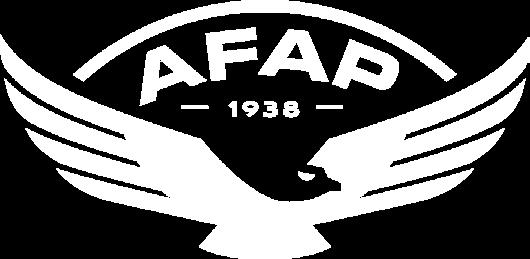
Editor: Anna Cousins
Contributors: Chris Aikens, Deanna Cain, Anna Cousins, Marcus Diamond, Lachlan Gray, Joanne Janes, Patrick Larkins, Simon Lutton, Jared
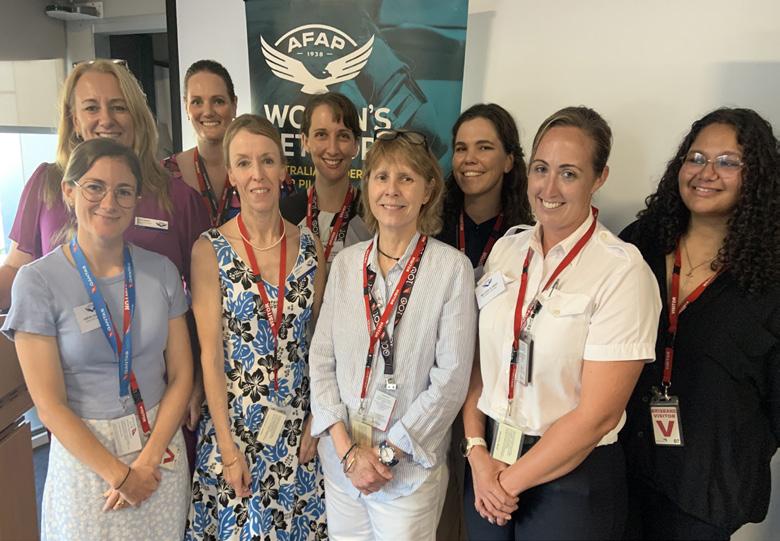
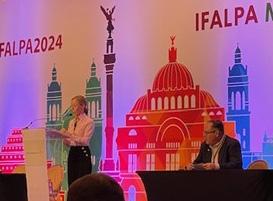
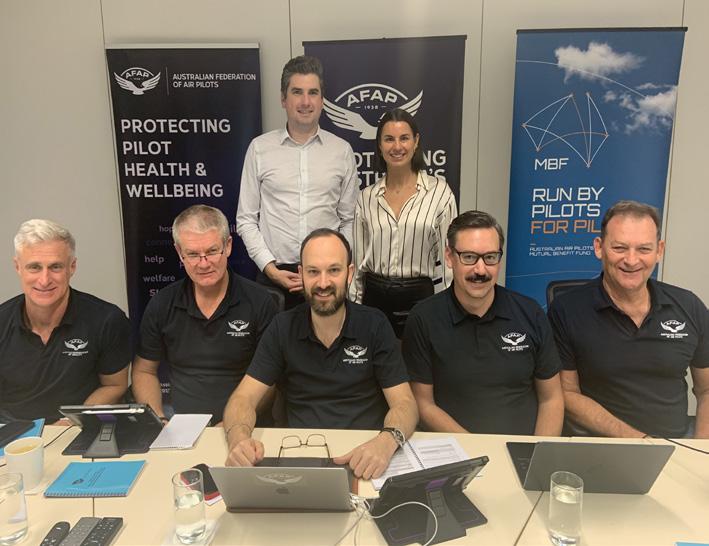
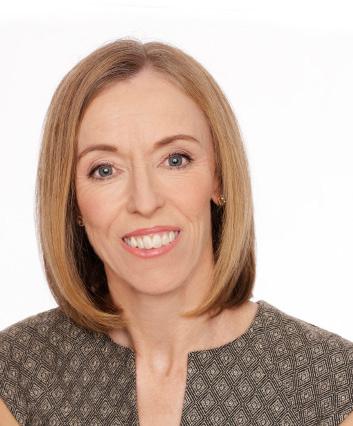

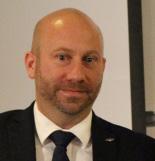
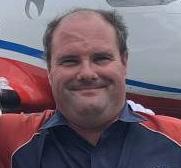
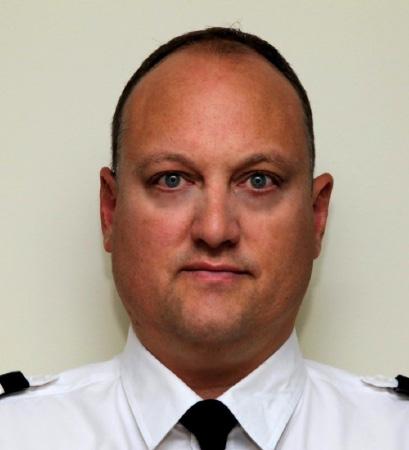
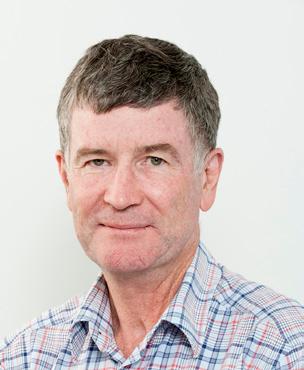
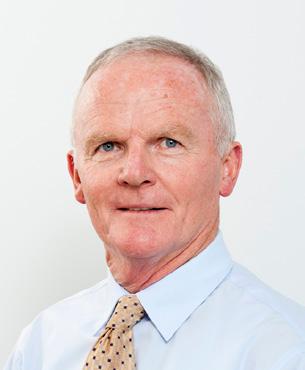
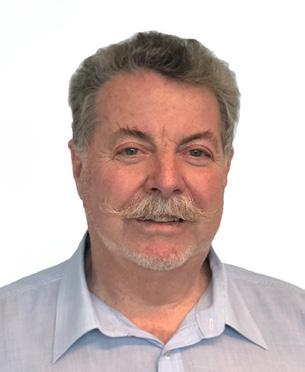
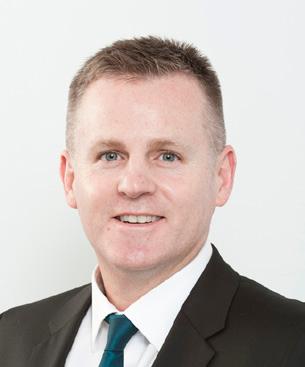
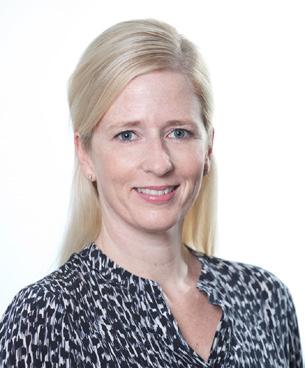
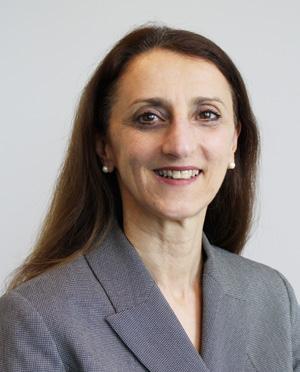
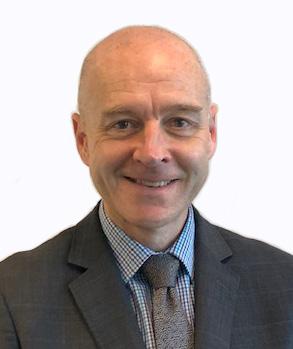
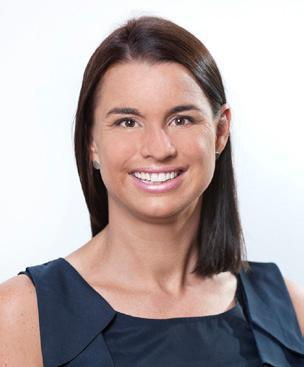
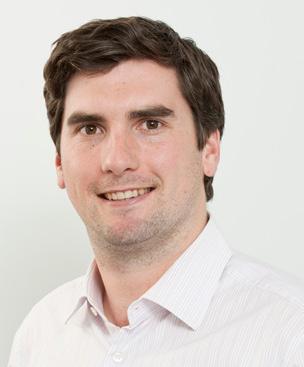
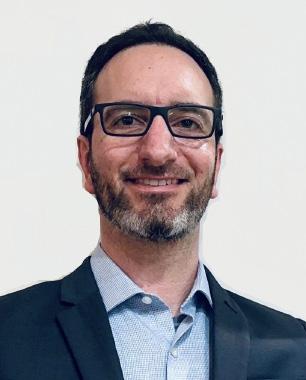
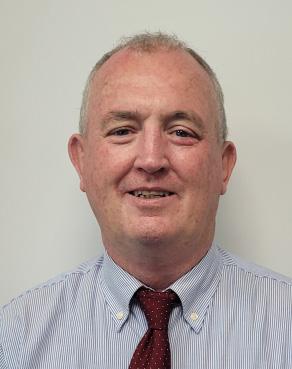
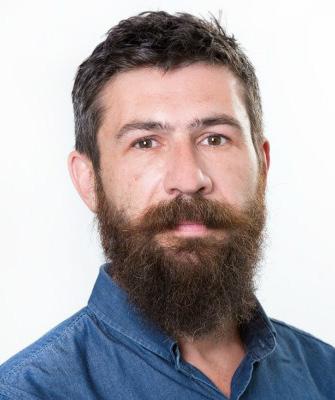
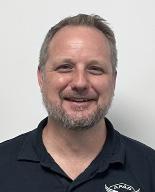
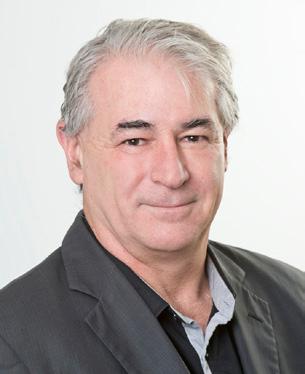
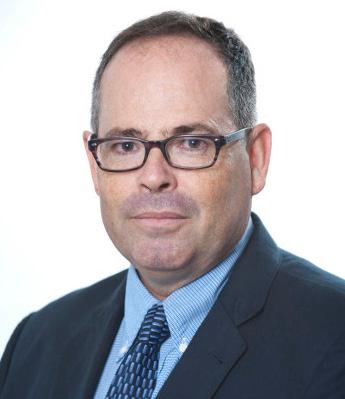
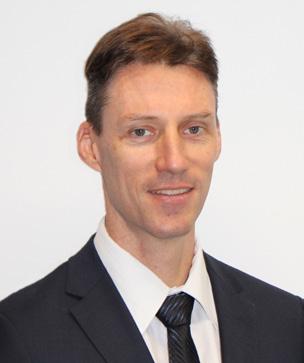



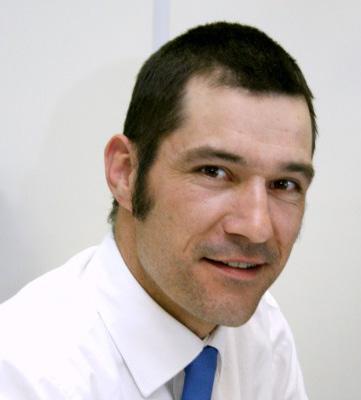
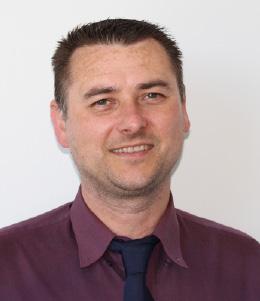
Recently I had the opportunity to attend the International Federation of Airline Pilot Associations (IFALPA) conference in Mexico City. The AFAP is a founding member of IFALPA and we have been actively involved in the work of IFALPA since 1949. IFALPA is predominantly a safety and technical professional organisation. It works to create and uphold the highest safety standards around the world. I imagine that many members do not fully appreciate or understand the importance of our involvement in IFALPA. IFALPA has a seat at ICAO and through this ensures the voice of pilots are heard when developing or changing international aviation safety standards. Another invaluable benefit of our IFALPA membership is that we can have expert local assistance provided to a member who has an incident or encounters difficulties when flying overseas. We also reciprocate this assistance when a foreign crew member has an incident or has any difficulties in Australia.
For a number of years now IFALPA has been championing the global “Safety Starts with 2” campaign. I cannot stress enough the importance of this campaign in protecting crew and passenger safety. The reduced crew concepts currently being explored by large jet manufacturers and particularly the European regulator are purely designed to save money. The industry has long recognised that multi-crew operations are safer for the aircraft and its occupants and the concept of crew reduction, especially on long haul flights, is contrary to the many other initiatives that are improving safety. This concept is a threat to worldwide aviation safety. I encourage you to make yourself familiar with the concepts via the IFALPA website and wherever possible I urge you to voice your support for the 'Safety Starts with 2' campaign.
Another recent example of the importance of international pilot collaboration was AusALPA’s release of two safety bulletins to IFALPA members. The first of these bulletins addresses significant deficiencies, below ICAO standards, in the provision of ATC services which has led to frequent activation of TIBA airspace in Australia. The second refers to the lack of the required level of firefighting services at primary airports. The overseas pilot associations have since passed this information to their operators, who were unaware of the issues, but as a result have made adjustments to certain operating procedures when arriving in Australia. You can read about these bulletins in this edition of AIR PILOT.
When I reflect on our involvement in IFALPA I cannot help but see the similarities to involvement in the AFAP. To a large degree, what you get out of the AFAP is a result of what you put in. The AFAP, like IFALPA, relies on the voluntary work of members. It is how we develop our expertise, build our culture and defines what we stand for. Through the foresight of pilot volunteers, the AFAP is currently leading the way globally in areas such as cabin air quality and pilot skill development through programs such as Resilient Pilot. These are achievements that we should be proud of, and we should celebrate the volunteers within the AFAP who give their time to support these initiatives and generally improve the working conditions for other pilots. We also have a responsibility to explain these initiatives and the AFAP structure more widely to our younger members, the future of your union. We all have very busy lives but the value of giving to your AFAP is important and in so many ways extremely rewarding. Give it a try.
On a final note, I want to express my support for all members who have lost their job as a result of the recent collapse of Bonza. Our thoughts and best wishes go out to all Bonza pilots. I hope all Bonza pilots can find other pilot employment as soon as possible and the impact is reduced as much as possible. It is a salient reminder of the volatile nature of our industry.
Please enjoy this edition of AIR PILOT.
 Captain Louise Pole AFAP President
Captain Louise Pole AFAP President
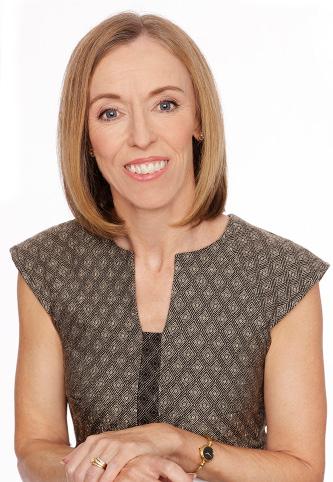
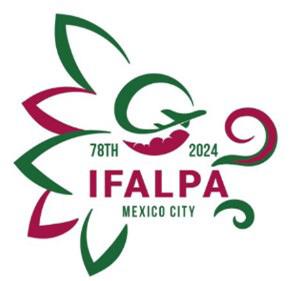
Each year, the International Federation of Airline Pilot Associations (IFALPA) holds a general assembly in the form of a four-day conference where nearly 500 participants, representing over 75 Member Associations from around the globe, meet with other professionals in the airline pilot community to discuss current industry developments and recommend policies to promote the highest level of flight safety.
This year the 78th IFALPA Conference took place in Mexico City over 10-12 May. The conference saw AFAP President (and then AusALPA President) Capt Louise Pole newly-elected as IFALPA Regional Vice-President (South of Pacific) and AFAP Helicopters Pilot Council Chair Capt Matt Nielsen re-elected for a fourth term as Chair of IFALPA's Helicopter Committee.
Regional Vice-Presidents work with member associations in their geographic region to identify common priorities. The Executive Board then sets overall objectives for IFALPA based on these priorities from the regions, along with those identified by the various IFALPA Committees.
In the final Friday session, Capt Pole and AFAP Safety & Technical Manager Capt Marcus Diamond presented on the AFAP's newly-developed Safety Occurrence Guide and the growing success of the Resilient PIlot program.
Ahead of the conference opening, participants were also able to attend the one-day Global Pilot Symposium (GPS) on 9 May.
Building upon last year's "call to action" in addressing Reduced Crew Operations (RCO), this year's GPS delved deeper into the upcoming challenges for the industry.
Member Associations presented the communications campaigns they have rolled out at the local level to protect crew and passenger safety and fight this attempt to reduce crew numbers in airline flight decks,
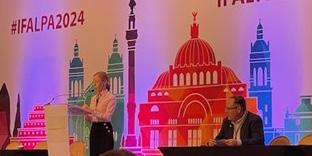

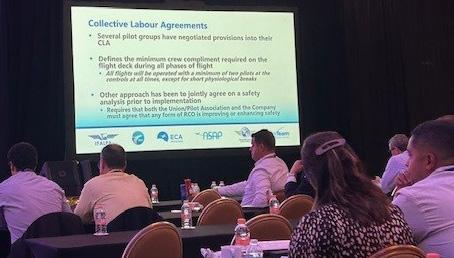

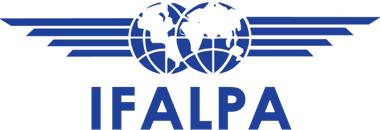
Members continue to report undue reliance on Traffic Information Broadcasts by Aircraft (TIBA) in airspace operations in Class A, C, D or E Airspace without Air Traffic Services (ATS).
As part of its contingency planning for unavailability of ATS, Airservices Australia (AsA) has been repeatedly utilising TIBA airspace activation around the country since the Covid-19 pandemic.
There are no ATC communication or surveillance services available in TIBA airspace, which means that flight crews are responsible for maintaining their own separation in such airspace.
This Safety Bulletin is to alert pilots to the possibility of TIBA activation in any class of the Australian airspace at short notice, and to provide guidance on what to expect from operations in such airspace.
As per ICAO Annex 11, Traffic Information Broadcasts by Aircraft (TIBA) airspace activation should be introduced only when necessary and as a temporary measure in order to supplement collision hazard information provided by ATS outside controlled airspace.
This activation may be triggered by a temporary disruption of normal ATS, such as shortage of ATC staff to cover a particular shift.
The extensive and repeated use of this measure in Australia in 2022 (approx. 250 TIBA activations) and 2023 (approx. 90 TIBA activations in the first half of the year) in Class A, C and E airspace meant disruptions to most aviation operations, including amended and/or reduced airline schedules to mitigate risks associated with TIBA operations including flight cancellations or delays, and/or diversions around reclassified airspace.
With no ATC communication or surveillance services available in TIBA airspace, flight crews are responsible for maintaining their own safety.
Download the Safety Bulletin: 24SAB03 24 April 2024
www.ifalpa.org/publications/library/ausalpasafety-bulletin-tiba-airspace--3971
Additionally, enactment of TIBA procedures is accompanied by the activation of a Temporary Restricted Area (TRA) with the approval of the Australian Civil Aviation Safety Authority (CASA).
TRA allows AsA to manage access to the affected airspace to maintain an acceptable level of aviation safety with no ATS available.
The NOTAM for the particular location where airspace is subject to TIBA and/or TRA should advise which radio frequency TIBA procedures must be applied.
However, there have been examples of NOTAMs that did not include this information, assuming flight crew awareness of the required TIBA radio frequencies.
Pilots are urged to avoid TIBA airspace by flight planning around it instead of accepting clearances that will route them through the airspace. If flight crews find that the only safe option available to them is to transit via TIBA airspace, they should:
1. Work with their Flight Operations Department to obtain a clearance through the airspace that minimises flight risk;
2. Review their company Operations Manuals and FCOM for any other relevant procedures to ascertain how these may be affected by procedures contained in the NOTAM for the designated TIBA airspace; and
3. Submit a company safety report for any operations through TIBA airspace.
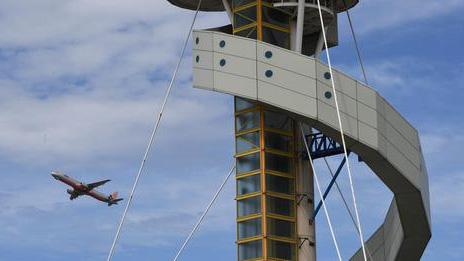
Airservices Australia (AsA), the government agency responsible for provision of Aviation Rescue and Firefighting Services (ARFFS) at many Australian airports, has operated under the ICAO Remission Factor since the Covid-19 pandemic.
Our position on this mirrors that of IFALPA, which is to protect and preserve safety on the ground by not relying on the Remission Factor for providing ARFFS in any Member State, not even for a limited period.
Some international airports in Australia have been under-categorised for the level of ARFFS required by the largest aircraft operating into these aerodromes and mandated by ICAO’s Annex 14 Vol 1.
Some have also been consistently providing ARFFS of two or more categories lower than required by the largest aircraft operating into these airports and mandated by ICAO’s Annex 14 Vol 1.
Furthermore, in the preceding several months, there have been multiple instances where ARFFS were completely withdrawn from a few international airports in Australia, resulting in delayed departure and/or arrival of aircraft without any level of protection.
These safety-jeopardising practices, now “normalised” in Australia, are linked solely to a number of issues at AsA: including:
• Insufficient number of employed aviation firefighters (understaffing across the whole agency has been a continuous issue since the Covid-19 pandemic);
• Obscure methodology of calculating the number of airport movements which appears to only happen once a year on 1st November, which assists Airservices Australia in relying on the ICAO Remission Factor to provide a consistently lower RFF service; and
• No set methodology used to determine the requisite minimum RFF staffing levels at Australian aerodromes, despite the existence of readily available ICAO Task Resource Analysis (TRA) methodology successfully used by other Member States but not implemented by AsA.
Member Associations are alerted to the continual lowered level of ARFFS provided at Australian airports, possibly as low as nil and often activated at a short notice, and to assist in developing relevant contingency protocols for flight crews flying into Australia.
Download the Safety Bulletin: 24AUSALPASB02 - April 2024
www.ifalpa.org/publications/library/aviationrescue-and-firefighting-services-arffs-inaustralia--3977pdfairspace--3971:
Airservices Providing inadequate ARFFS at Australian airports may result in serious degradation of chances of survival for both crew and passengers should an emergency such as a fire or an accident occur.
For example, providing Cat 7 instead of Cat 9 at Gold Coast (YBCG) aerodrome means the following significantly reduced minima:
• ARFFS vehicles available – 2 instead of 3
• Water available – 12,100 litres instead of 24,300 litres
• Foam discharge rate – 5,300 litres/minute instead of 9,000 litres/minute
• Dry chemical powder available – 225kg instead of 450kg
• ARFFS operational crew available – 6 instead of 10 (1 Fire Commander + 1 Station Officer + Firefighters)
• Before conducting a flight into any airport in Australia, operators should conduct a comprehensive risk assessment. This assessment should consider all potential safety hazards and implement effective mitigation measures to minimise risks to aviation safety.
This is particularly relevant to Cat 10 aircraft operations into Melbourne (YMML), Brisbane (YBBN) and Perth (YPPH), and Cat 9 aircraft operations into the Gold Coast (YBCG) as these airports routinely do not provide the required level of ARFFS.
• It is essential that all pilots are briefed on the current ARFFS situation in Australia and the appropriate response protocols by their operators.
• Flight crews should remain vigilant and obtain regular NOTAM updates enroute and have a contingency plan in place (such as a suitable Alternate airport) whenever they fly to any Australian airport.
• All instances of lowered ARFFS provided in any Australian aerodrome should be immediately reported as a hazard both internally to the operator and externally to the appropriate authorities.
The safety of passengers, crews and aircraft should always be the paramount concern in any aviation operation. Operating aircraft into aerodromes that do not provide the required level of ARFFS in Australia poses serious safety risks in the event of a fire or an accident should not be underestimated or ignored.
All stakeholders, including airlines, regulatory authorities, and ICAO, should work together to ensure the Remission Factor is only ever used as intended, i.e. as a contingency measure and in a limited period of time.
For more information on either bulletins: technical@afap.org.au
Contrary to stereotypes, pilots are not devoid of anxiety or emotion. Experiencing anxiety in response to challenges is a natural and essential part of human psychology. Occasional anxiety acts as a crucial alert system, signalling us to pay attention and allowing our body to mobilize resources for the challenges ahead.
For pilots, this acute awareness and responsiveness can be vital in ensuring the safety of their passengers and crew. Anxiety helps manage our risk-taking behaviour, ensuring that we remain vigilant and cautious, making well-considered decisions under pressure.
Anxiety isn’t all bad. However, too much stress or anxiety can interfere with our ability to regulate attention, which can have serious consequences in aviation.
What causes stress or anxiety is personal. Most psychological symptoms or disorders are best understood under a biopsychosocial framework:
• Biological - the body’s physiological, adaptive responses to fear
• Psychological - our thoughts, beliefs, and perceptions about our experiences
• Social - factors that may trigger, shape, weaken, or strengthen biological and psychological vulnerabilities
Pilots can experience stress from the scrutiny and examination that is required as part of training and competency requirements. Time spent in training, studying, exams, medical, line and simulator checks can add a layer of continuous pressure.
In these scenarios, it is common for stress and anxiety to arise when a person perceives they do not have the skill to meet a challenge or fears not meeting particular standards when completing a specific task.
Performance anxiety may also arise in these situations and can affect those who are overly fearful of failing to finish a task or fulfil a responsibility properly, and it can occur in any type of situation with a seemingly important outcome.
Pilots are also subject to the pressures and stressors of daily life, including within our family, caregiving roles, being away from home and trying to meet day-to-day demands.
It's time to acknowledge the human side of pilots, recognising that they are subject to emotions and vulnerabilities. There are proactive steps that can be taken to help manage anxiety or stress in pressured environments. These strategies are generalized and may not be suitable for everyone. It's important to reach out to a professional if difficulties with anxiety or stress persist or interfere with daily functioning.
Anxiety and stress are influenced in part by our perception of events. Being aware of internal thoughts and feelings is the first step toward management of stress and anxiety. Mild stress and anxiety respond well to similar coping mechanisms, such as physical activity, a nutritious and varied diet, and good sleep hygiene.
Examine and challenge your thinking patterns to gain a different perspective on situations, ideas, or relationships. Often, anxiety arises when the future is perceived as negative, problematic, or dangerous.
Checking thoughts for evidence for or against a future outcome can help calm anxiety. For instance,:What do I think is going to happen? Is that helpful or true? What are other ways of looking at the situation and what are other possible outcomes? Am I discounting positives?
If anxiety is related to perceived skill, engaging in positive self-talk to reassure ourselves of our skills, preparation, and previous success may also assist.
Regular mindfulness practice has been found to positively affect combat aviation pilots, resulting in a reduction in the physiological symptoms of anxiety related to performance and improvements in selfperceived skills associated with mindfulness, attention regulation, and arousal regulation. Mindfulness practice can take many forms, such as meditation, breathing exercises, and grounding techniques.
Taking a deep breath before performing or completing an intimidating task can ease anxiety. Grounding techniques can also help focus attention on the present scenario, rather than the anxiety experience.
For example, prompt yourself with the following to help with immediate grounding and attention regulation.
1. What are five things I can see?
2. What are four things I can hear?
3. What are three things I can feel?
4. What are two things I can smell?
5. What is one thing I can taste?
Strong relationships with friends and family members can bolster your mood, improve your outlook, and preserve your mental well-being. Research shows that people with high levels of social support seem to be more resilient in the face of stressful situations.
While pilots are undoubtedly skilled and dedicated professionals, they are also human. If anxiety becomes problematic, early engagement with professional support is encouraged. Anxiety and stress can be successfully treated. Professional assistance can include psychological interventions such as:
• Cognitive Behavioural Therapy (CBT) - including imagery rehearsal and exposure therapy
• Dialectical Behaviour Therapy (DBT)
• Mindfulness Skills Training
The Australian Federation of Air Pilots provides its members and their families with access to the Member Assistance Program (MAP). This program provides members with free and confidential access to psychologists for support for various mental health challenges or to help enhance their well-being.
Support is available for work or personal problems. Members are eligible to receive four sessions per issue, per annum. For example, a member may want to access four sessions for Anxiety and then four sessions for Well-being strategies.
The MAP is delivered by Psychologists working with PeopleSense by Altius. and can be accessed at any time on 1300 307 912
Visit www.afap.org.au for a list of AFAP Welfare reps and links to welfare services.
1300 307 912 (Australia)
+618 9388 9000 (Overseas)
Depending on your location, you can access confidential professional assistance from psychologists trained in pilot-specific issues - in person or by phone, or videolink.
The Member Assistance Program (MAP) is free for AFAP members and their immediate families. Four free sessions are available per issue. If required, there may be provision for additional sessions. MAP psychologists also provide 24/7 crisis care.
This service should be used to help resolve any problems or issues, including:
• Stress and anxiety
• Trauma
• Relationship difficulties and family issues
• Change in career and resettlement
• Interpersonal conflict
• Aftermath of an accident or incident
• Coping with workplace injuries
• Alcohol and drug issues
• Work-related problems
• Gambling worries
• Grief and loss
• Financial or legal pressures
AFAP members can also access a wellbeing session with a qualified Psychologist and Coach who can help you establish a wellbeing plan. What you decide to focus on is up to you and may include;
• Review of wellbeing behaviours or development of a wellbeing plan
• Developing positive thinking skills
• Enhancing relationships
• Resilience training
• Sleep management
• Coaching
• Mindfulness training

Provisions have been inserted into the Fair Work Act 2009 (Cth) to provide employees with a new right to disconnect from their employers, or third parties, outside of work hours.
The right commences operation on 26 August 2024 (noting that small businesses, those with less than 15 employees, have a 12 month exemption and will not have to comply until 26 August 2025).
There has been much discussion about what this right will mean in practice. This article will take you through the new provisions in detail. We will also take the opportunity to examine the ways (if any) that the right might affect pilots in particular.
What actually is the right to disconnect?
The right to disconnect is phrased in the legislation as follows:
• An employee may refuse to monitor, read or respond to contact, or attempted contact, from an employer outside of the employee’s working hours unless the refusal is unreasonable.
• An employee may refuse to monitor, read or respond to contact, or attempted contact, from a third party if the contact or attempted contact relates to their work and is outside of the employee’s working hours unless the refusal is unreasonable.
What constitutes contact is not defined in the new provisions. We think a broad interpretation will apply (including phone calls, text messages, messaging platforms and emails).
As you can see, the provisions hinge on whether the refusal to engage with an employer or a work-related contact from a third party outside of work hours is reasonable or not.
How do you determine whether a refusal is reasonable?
Reasonableness will always be a question of degree and will depend on the specific circumstances of any situation.
However, the new provisions do give some guidance on what will be taken into account in assessing whether the refusal is reasonable.
These include (but are not limited to):
• The reason for the contact or attempted contact
• How the contact or attempted contact is made and
the level of disruption the contact or attempted contact causes the employee
• The extent to which the employee is compensated:
- to remain available to perform work during the period in which the contact or attempted contact is made, or
- for working additional hours outside of the employee’s ordinary hours of work;
• The nature of the employee’s role and the employee’s level of responsibility;
• The employee’s personal circumstances (including family or caring responsibilities).
The new provisions also provide that a refusal will be unreasonable if the contact or attempted contact is required under a law of the Commonwealth, a State or a Territory.
There are two important related matters to note about the right to disconnect and how they connect with modern awards and agreements.
First, all modern awards, including the Air Pilots Award 2020, must include a term that provides for the exercise of the right to disconnect as it is set out above.
Second, where an employee is covered by an enterprise agreement that contains a term providing a right to disconnect that is more favourable that the rights described above, then the term in the enterprise agreement continues to apply.
There is no requirement for enterprise agreements to include a right to disconnect, however the issue may be relevant when the Fair Work Commission applies the better off overall test in an approval application, where it must compare the enterprise agreement with the relevant modern Award.
How does an employee rely on the right to disconnect and enforce that right?
First, an employee can rely on the stand alone right as set out above. If a dispute arises over the right to disconnect, the employee should raise it with their employer at the workplace level. If that fails to resolve the dispute, an application can be made to the Fair Work Commission for an order to tell the employee to stop refusing contact, tell the employer to stop making contact, or to otherwise deal with the dispute.
Second, the right to disconnect is explicitly defined as a workplace right for the purposes of the general protection provisions in the Fair Work Act 2009 (Cth). For example, this means that an employer cannot take adverse action against an employee for exercising, or proposing to exercise, the right to disconnect.
The potential impact for pilots is not yet overly clear. There are several aspects that need to be examined.
First, how will the provisions interact with pilots who perform long periods of standby, and how are those hours of standby to be characterised? Are they hours of work? Do those periods count towards the hours of work or reasonable additional hours of work for the purposes of the national employment standards (which is 38 hours work per week plus reasonable additional hours)?
Second, how will regulatory contact, such as that from the Civil Aviation Safety Authority or the Australian Transport Safety Bureau, or employers complying with regulatory requirements, be treated? Are these types of contact required by a Commonwealth law? If so, will refusal to connect be deemed unreasonable?
Third, what will happen with enterprise agreements that regulate contact between an employer and a pilot? How will these provisions be negotiated in future? Will terms of enterprise agreements that authorise contact during a duty free period be open to challenge?
Finally, it is important to remember that the right to disconnect is not a right to not be contacted in itself (although the Fair Work Commission can make orders having that effect). On the wording of the legislation, it is a right to not acknowledge work-related contact.
Once the provisions commence operation, the Fair Work Commission and Courts will then be able to interpret the new requirements. It will take time for those decisions to be made and for that guidance to appear.
As the case law progresses, pilots should give thought to how the new right might be used to improve terms and conditions as part of bargaining, as well as managing work-life balance.
The AFAP will closely monitor developments in how the new provisions operate and are interpreted by the Fair Work Commission and Courts, to ensure that pilots obtain the full benefit of the new legislation

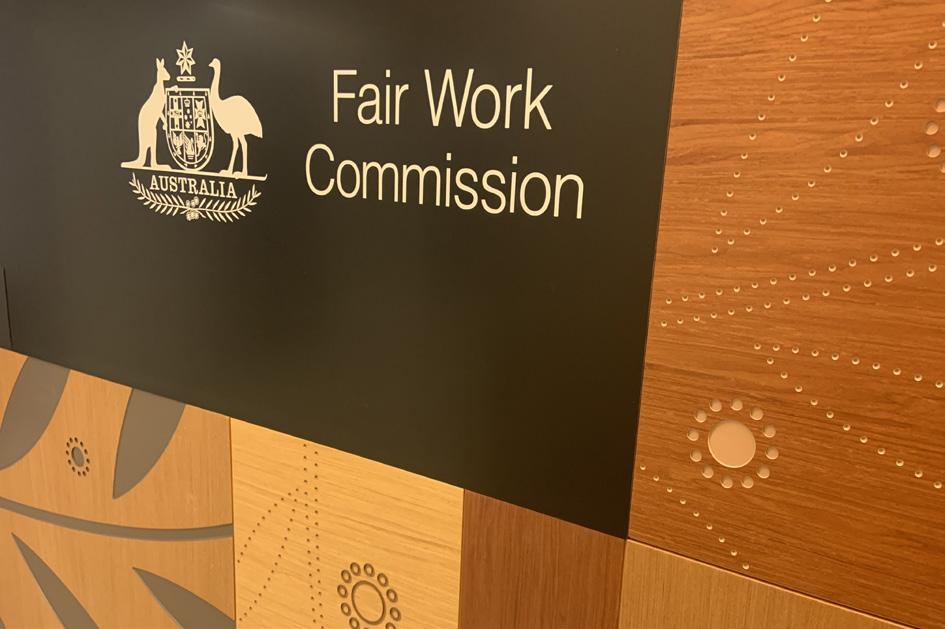
The Fair Work Commission (FWC) has this year decided to increase the National Minimum Wage and all modern award minimum wage rates from 1 July 2024.
There are 121 modern awards which apply to employees in the national industrial relations system in various industries and occupations - the Air Pilots Award 2020 is one of these awards.
Allowances calculated from the Standard Rate in the Award will increase by 3.75%. While other allowances such as loss of licence, accommodation, meals and transport allowances are subject to separate indexation yet to be confirmed.
This increase in Award wages will not affect members currently covered by an enterprise agreement.
Approximately 20.7% of the Australian workforce, or about 2.6 million employees, are paid in accordance with minimum wage rates in modern awards.
They, and their employers, are directly affected by this decision. In addition, there are some categories of employees who are indirectly affected by way of the review outcomes being ‘flowed on’ by various means.
The FWC estimates that this decision will apply to the wages of about a quarter of all Australian employees.
"The total wages cost of the modern-awardreliant workforce constitutes less than 11% of the national ‘wage bill’."
The AFAP expects that employers will pass on increases to Award-based pilots from the first full pay period on or after 1 July 2024.
Additionally, the required employer superannuation contributions in accordance with the Superannuation Guarantee (Administration) Act 1992 (Cth) will increase to a minimum of 11.5% from 1 July 2024.
If you have any queries about the increase to Award minimum wages and/or allowances, or your entitlements in general, please contact industrial@afap.org.au or call the AFAP on (03) 9928 5737.


In celebration of International Women’s Day 2024, pilots and air traffic controllers came together in Brisbane on 7 March to discuss shared challenges in the aviation industry.
AFAP and Civil Air members heard AFAP Safety & Technical Officer – and former Virgin Australia training captain – Naomi Radke present on ‘Safety II and Continuous Resilience Development for Controllers and Pilots’.
AFAP President Captain Louise Pole also hosted a Women’s Network meeting in Cairns on 6 June.
Attendees were briefed on the AFAP’s involvement in a number of important forums, including the federal government’s Aviation Strategic Workforce Planning Committee and Women in Aviation Industry Initiative and the IFALPA Female Pilots Working Group.
Captain Pole noted the recent release of IFALPA Safety Bulletins highlighting our concerns with Airservices' repeated utilisation of TIBA airspace activation around the country and the inadequate level of aviation rescue and firefighting services at several international aerodromes around Australia.
Ongoing issues with security at Cairns airport were discussed, including the high incidence of “pat downs” of pilots when reporting for duty in full uniform.
Members have reported many instances of feeling uncomfortable with the intrusive nature of the pat down process.
We encourage pilots to report any issues at Cairns or any other Australian airport to their company through the usual reporting procedures.
Members are also encouraged to provide any feedback to technical@afap.org.au as we work to try to improve the process of clearing security for flying duties.
SAVE THE DATE:
AFAP Women's Network AGM Thursday 1 August 2024
AFAP Brisbane office
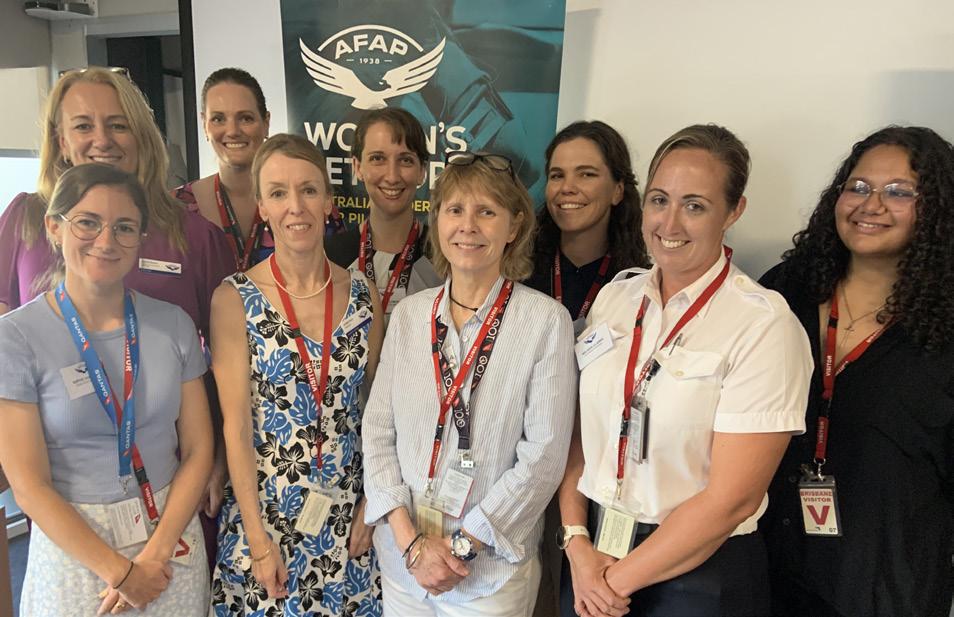
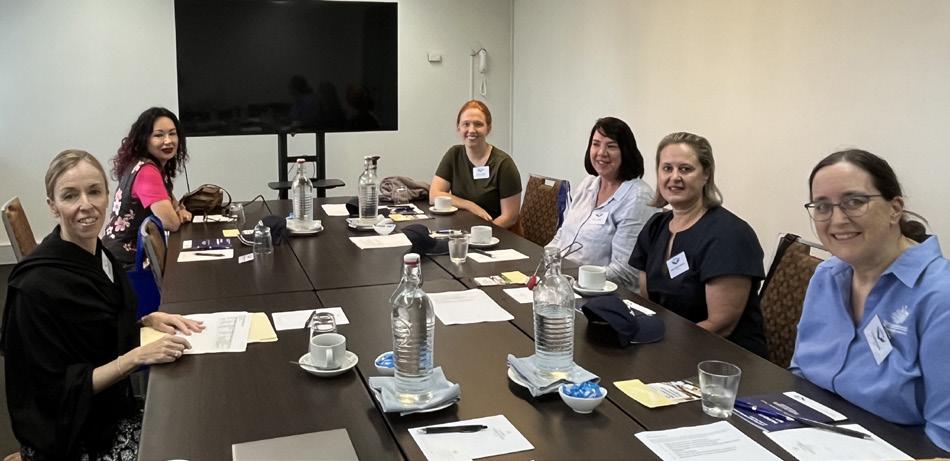
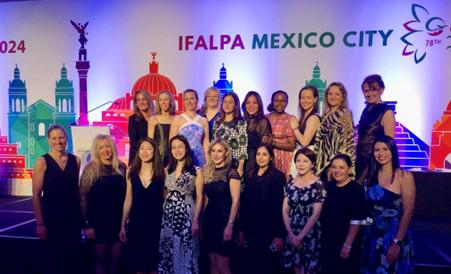
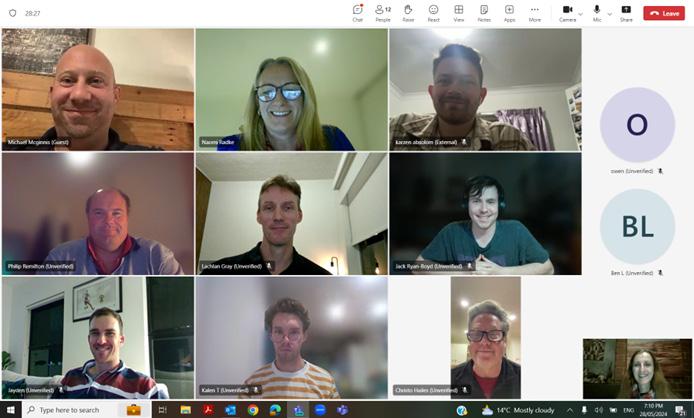
The second Leading Edge Workshop for the year was held online in late-May. More group mentoring workshops are planned for the second half of 2024.
AFAP's 'New Wings' program promotes and advances the interests of Australia's next generation of pilots. It seeks to ensure that pilots in the early stages of their career are effectively supported on the path to a fulfilling profession (including through scholarships and mentoring opportunities).
As part of this wider program, the AFAP is hosting a series of informative 'Leading Edge' online workshops covering a range of topics specifically designed for early-career pilots (from CPL to first 5 years) looking to develop their professional knowledge and skills.
Through this initiative, coupled with our 'Resilient Pilot' project, participants will also be able to access a team of experienced pilots available for ongoing mentoring in an informal environment.
The first of these online workshops covered a range of sub-topics including:
• Key must haves from aircraft endorsements
• Importance of turbulence penetration awareness in GA
• Using decision-making models
The second of these online workshops covered a range of issues relating to the ICAO competencies including:
• What are the ICAO competencies
• Why are they important and how do I improve them?
• Practical examples for every pilot to use now
Future workshops planned for 2024 are: Workshop 3 – Coping with your first scare Workshop 4 – Saying ‘no’ the right way
Members will be notified by email and on social media once dates for these workshops are finalised.
The Leading Edge workshops are a chance for new pilots to network with each other and learn from experienced pilots from within the AFAP. The workshops are suitable for students, new CPL holders, cadet pilots and other members in the early stages of their piloting careers. More information: events@afap.org.au
Members employed as Flight Instructors with various employers have been raising various issues regarding Award entitlements.
The Fair Work Act 2009 (Cth) now prohibits an employer from including confidentiality conditions regarding remuneration, including conditions relative to the remuneration (such as hours of work or allowances). The AFAP will be seeking feedback from members on confidentiality conditions.
The AFAP has prepared a Flight Instructors survey that will help us to examine employment conditions across pilot groups. We intend to distribute the survey to members at certain employers during June-July 2024. The results will be analysed to identify issues, and then options, available to members.
The National Pilot Council (NPC) will host information seminars (followed by networking) in Darwin and northern Western Australia in August.
Members and other pilots or instructors are invited to attend and participate in discussion of industrial rights in the aviation industry and to learn more about salary rates and working conditions (including rostering and other common issues for commercial pilots).
AFAP Legal/Industrial Officers will outline recent and forthcoming changes to industrial relations legislation, and other critical aspects impacting employment as a professional pilot.
AFAP Safety & Technical staff will provide an update on recent progress and success in the effort to improve safety standards (including in fatigue management).
We will also briefly describe how pilots working in General Aviation (in fixed wing or rotary operations) can best make use of the benefits and services the AFAP has to offer, including mentoring, welfare services and Loss-of-Licence cover through the AAP Mutual Benefit Fund.
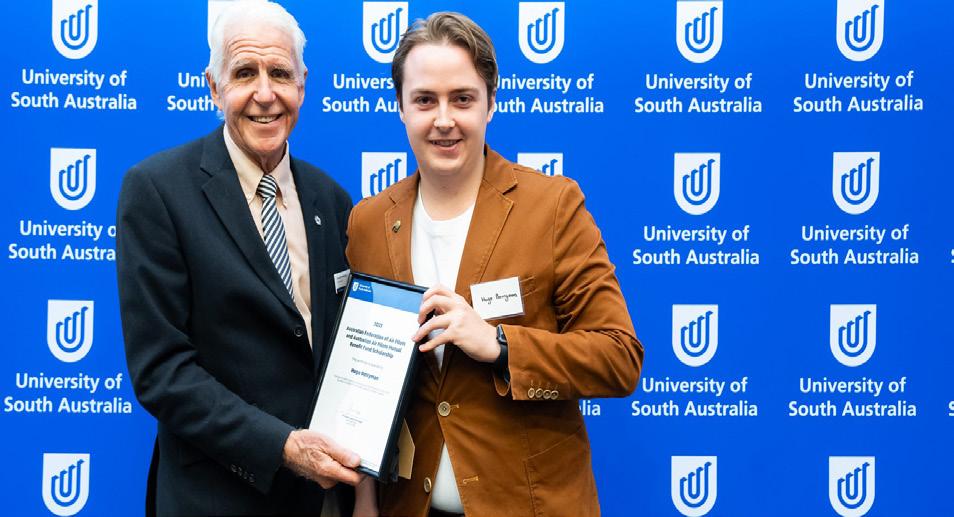
With significant movements in the Eastern workforce the Eastern Pilot Council (EPC) has also been impacted with two EPC committee members recently moving on.
Thank you to first officers Will Hamilton and James Kosenko for their work on both the EPC committee and the EA negotiating team. In view of these departures,
Captain Maddie Bartlett (Melbourne-based) and Captain Jess Chong (Sydney-based) have now joined the remaining EPC committee representatives Capt Nathan Hayes (Chair), Capt Ben Moss (Vice-Chair), Capt Tim Anderson (Secretary), Capt Shabbir Parekh and Capt Brendan Quaife.
There has been successful conclusion of bargaining and approval of a new enterprise agreement (EA) for Eastern.
The negotiating team undertook a series of roadshows in late January and the resultant ballot was close to an 85% acceptance of the new deal, which was a strong endorsement of the significant improvements achieved by this EA. The new EA became operational from 20 February 2024 and the headline improvements are:
• On average most crew to receive a 22-24% increase over the 4 years in salary alone;
• Low hour pilots will receive a 39% increase over the 4 year agreement. (more if they transition faster to 1500 hours);
• DHAA to add approximately 4-7% dependent on the amount of overnights. (Approximately 1% increase per overnight).
• Increased DHA will add approximately 4-7% dependent on the amount of duty hours worked;
• Low hour FO’s to progress to higher pay levels sooner. Also enables crew joining with previous experience to transition to higher pay from day 1;
• Additional 1% over the super guarantee rate;
• 10 DDOs with the company having the option to buy back the 10th day whilst they hire more crew (equates to 5% increase in salary).
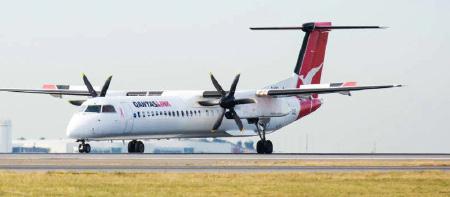
The Company advised of its plan to phase the Q300 out of Sydney to redeploy them in Melbourne and Adelaide while retaining all Q200 airframes for use in Sydney. In addition some 400 airframes were being moved from Sunstate into Eastern. As a result, this would require some pilots to be re-trained onto the Q400.
We understand the company is also reviewing its position regarding ongoing utilisation of the 200 aircraft from 2025 onwards.
The EPC has been working for some time to ensure the company’s intention to introduce a new automated rostering program would be able to still deliver on the fundamentals of the Eastern bidding system.
The developments have been positive as most of the previous problems with rostering success rates were usually negatively impacted by the manual manipulation of rosters. Current trialling success has resulted in the EPC approving the introduction of this new system and there will be much ongoing monitoring of this process.
After months of meal problems within the Melbourne base and after a short member survey, it was agreed to trial a three month option of having one hot and one cold meal for breakfast. At the end of the trial, EPC members will be approached to see if quality has improved and whether this should continue.
It has been a tumultuous time at Network Aviation (NA). The third ballot for a proposed enterprise agreement (EA), undertaken over the Christmas period, resulted in a 57% no vote. The AFAP undertook further surveys of the pilot group to reconfirm with the Company just where they needed to move in order to secure a yes vote.
The company continued to show no appetite for ongoing negotiations, and a lack of understanding of the level of anger within the pilot group. This resulted in a series of both individual and continuous 24 hour stoppages of all work during February and March 2024.
The high level of member participation for the action significantly impacted the company's operations. The level of media coverage was also extensive, mostly positive in tone and in support of the members' position regarding what was clearly now an intransigent employer who faced a difficult period of negative public perception as to how the company was being run.
With the battle lines clearly drawn and Network showing no signs of engaging with the pilot group, the company's next step was to lodge an Intractable Bargaining (IB) Application with the Fair Work Commission (FWC). The company also undertook a further ballot of the pilot group tabling exactly the same proposals that had earlier been rejected in January.
This again showed the underhanded and intimidatory approach of the company which, after the pilots' rejection of the January proposals, removed previously agreed items from the negotiation table.
For the March re-ballot it re-tabled the very same items they had previously removed with the caveat that, should the result be another rejection of the proposals by the pilot group, then the very same items re-tabled would then be immediately removed again. To expect that such intimidatory practices would have been well received by the pilot group was yet another example of just how out of touch and antagonistic the company had become. Needless to say the pilot group showed a distinct lack of appreciation in such company tactics by subsequently voting down the proposals by 77%.
With the company actions hardening the position of the pilot group, coupled with strong legal advice, the AFAP and the pilot reps agreed not to oppose the company's application for IB. Consequently the IB Order was given by the FWC in March and, in accordance with the legislation, this terminated any future protected industrial action by the pilot group.
The camaraderie among pilots was exemplified by the willingness of pilots across the country to contribute financially to the fighting fund set up by the AFAP reps, to support those pilots through the financial hardship of the work stoppages. In a very short space of time the community had contributed over $60,000 to the fund, all of which was distributed to those within the AFAP members at NA.
It is now expected that the FWC's arbitration process will take many months. The first stage - a one-day hearing where a Full Bench of the FWC considered what should be the starting point for such an arbitration - took place on 2 May (but as yet no decision has been made).
"The lack of industrial maturity within the Qantas group during a time of an increasingly tight pilot market across the world has been staggering."
The behaviour of both the Qantas Group and the local Network Aviation management is a clear lesson in how not to treat to a pilot group - a group of employees whom they need to retain within a tight pilot market.
Unsurprisingly, the company's behaviour has resulted in pilots leaving to work for competitors. Realising that the path it had set was not conducive for pilot retention, The company has recently tabled a retention incentive payment for the remaining pilots. This has only served to further antagonise the pilot group.
On a positive note, the establishment of the Network Pilot Council under the AFAP's structure has set in place a formal constitutional framework for pilots to now be able to vote on and contribute towards a pilot council that will continue to advocate for and on behalf of the Network pilots.
This has been down to the amazing efforts of the three pilot representatives at Network who have worked many many hours to ensure the voice of pilot community in Network has been heard loud and clear.
Captain Steve Maughan, FO Cameron Mapley and FO Ben Walmsley deserve the highest praise during these incredibly trying times, as they have striven to lead the pilot group against an employer who has been hell bent on pursuing a crash-and-burn philosophy regardless of the impact of Network pilots.
The AFAP Resilient Pilot program provides a fresh approach to professional development allowing pilots a place to practice in a no-jeopardy environment. It helps pilots expand their knowledge skills and attitude by continuous development of behaviours contained within ICAO competencies.
The AFAP has been collaborating with Resilient Pilot in Britain since 2021 and has been instrumental in demonstrating how AFAP members can tailor their own development outside of their airline/operator environment.
This program is for any pilot at any level to take their next career step. Current participants come from Virgin, Jetstar, General Aviation, Students and Emergency services operators.
The program helps pilots expand their non-technical competencies allowing more capacity for technical competencies.
Major airlines around the world have recognised the value of a safe place to practice and there are four currently in talks to provide this development pathway for their pilots.
For more information, contact S&T Officer (and former Virgin Australia training captain) Naomi Radke via naomi@afap.org.au
Testimonials from Resilient Pilot participants:
“No one should attempt a Command without doing this [Resilient Pilot program] first."
“I can’t emphasize enough the safe space of big learning without the pressures of a sim/licence in a jeopardy environment.”
“The sessions supplement the EBT-focused training provided by my airline and contribute to my personal development"
“Made me more aware of behaviours and good habits I should be aiming at.”
“Resilient Pilot and particularly the CDS (Competency Development Scenarios) program has been a great addition to my command preparation. The team at Resilient Pilot have been absolutely fantastic in every regard.”
“Resilient Pilot has had a profound impact on my career. After a long hiatus from flying due to COVID19, Resilient Pilot equipped me with the necessary skills to regain my confidence and thrive in the airline environment. When the time came for my command upgrade, Resilient Pilot was there again, like an old friend, ready to steadfastly guide me towards the pinnacle of my career. In an era where airlines are no longer pioneers in professional development, Resilient Pilot has forged ahead, shaping the future for Professional Pilots across the world."

Another cohort of AFAP members from the same fleet at a major airline have been invited to participate in an anonymous research study. This survey will collect data about fume events reported by pilots who fly older jet aircraft along with blood samples for testing to confirm a specific protein decoration by the organophosphate engine oil additive called tricresyl phosphate (TCP).
The Global Cabin Air Quality Executive (GCAQE) conducts and/or funds various studies around the world to investigate cabin air quality issues.
All of the data collected in this new study will be deidentified and participation is voluntary, strictly confidential and anonymous. No names or other identifying information will be published.
The collective data will be analysed and published in a medical journal to further the science on fume events. Individual pilots may confidentially access their own results via a trusted source.
We hope this survey will help bring about the steps needed to protect crew health and enhance flight safety much like TCAS or EGPWS have previously. The overall aim is to help finalise a simple "finger-prick" bloodtest. that will be internationally certified to detect organophospahtes in the bloodstream.
To access published articles and other resources, visit the GCAQE website (www.gcaqe.org).
For more information about the study or to discuss providing an anonymous blood sample, contact AFAP Safety & Technical Manager Capt Marcus Diamond (marcus@afap.org.au).
Access a new peer-reviewed medical protocol: www.gcaqe.org/health
A new University of NSW (UNSW) study will provide Australian data that could improve safety and help more pilots with health issues continue flying.
The study by the university's School of Aviation is asking pilots to complete a 5-minute (anonymous) survey aimed at investigating if they have avoided healthcare because of worries about losing their licence.
CASA is not involved in the survey, but Principal Medical Officer Dr Kate Manderson says the results would give a local insight into 2022 US research into the likelihood of pilots seeking health care and declaring health issues to their medical examiners.
The US survey – by a research team led by Dr William Hoffman – found that in more than half of cases, pilots avoided seeking health care altogether.
Dr Manderson says it is well known that Australian pilots are reluctant to share their full medical story with their medical examiner or the aviation regulator, which has potential to introduce safety issues for the industry as well as health issues for the pilot.
"Dr Hoffman’s research has shed light on the extent of health care avoidance and non-declaration, which is a first step towards being able to deal with the safety implications and then to improve the system,’ Dr Manderson says.
"The US Federal Aviation Administration's medical assessment processes and the US health system is very different ... UNSW’s research will mean we have a data set that applies to the unique Australian setting,"
"This data will be a powerful contributor to drive beneficial change for our aviation medical processes, and push us towards a risk-based, data-driven safety management system approach to medical certification."
Complete the ‘Healthcare avoidance in licensed pilots due to aeromedical certification loss’ Pilot Health Survey
The AFAP's Safety Occurrence Guide provides a framework for members of what to do and what to expect following a safety-related occurrence.
It offers insights into the support available, outlines the safety event interview process, and sheds light on typical human reactions to such circumstances.
The guide encourages members to contact the AFAP after an occurrence as soon as possible. If pilots seek guidance within 3-4 days post occurrence, they are more likely to experience a desirable outcome and more expeditious return to normal duties.
AFAP Safety Occurrence Guide is a tool to empower pilots during challenging times. Contact technical@afap.org.au for more info (or a copy).

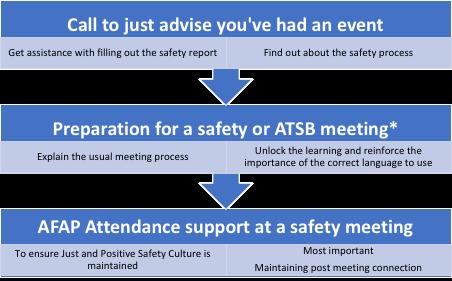
Safety & Technical
Pilot numbers on the Saab fleet remain in crisis. A large number of pilots have left the company in recent months for opportunities at jet operators. Many first officers leave Rex before getting to the point of a command upgrade (or, in some cases, before even being checked to line as a First Officer). This has meant that Rex is routinely unable to crew flights at the rostering stage, with the Crewing department left scrambling from day to day – begging captains to work on days off or extend duties on days they are already working, in order to minimise cancellations.
The nature of state government contracted flying in Queensland and Western Australia – along with Rex’s inability to attract and retain pilots there – has led to pilots from bases such as Sydney, Wagga, Adelaide and Melbourne routinely spending weeks at a time in Perth, Brisbane and Cairns. Unfortunately, despite other ranks and bases nominally being at the required levels (under the current, significantly reduced schedule), sending pilots to cover shortages in Western Australia and Queensland effectively leaves all bases short of crew.
Some captains have now been assigned involuntary temporary transfers to either Perth or Cairns, each for a set period of 28 days. Importantly, due to protections introduced in the last enterprise agreement, each pilot is limited to no more than a single company-directed temporary transfer in their entire tenure at Rex. However, pilots that have not been transferred typically spend two to three weeks per roster working out-of-base, leading to considerable dissatisfaction within the pilot group.
Due to the critical shortage of captains in the Saab fleet, Rex has been largely unwilling to offer start dates to Saab captains interested in taking on positions in the 737 fleet. Instead, Rex has begun to offer Saab first officers 30-month secondments on the 737 fleet, to be paired with 30-month deferred start dates allocated to Saab captains. Unfortunately, the AFAP does not expect this strategy will be effective in retaining crew.
Rather, we expect Saab captains who have expressed interest in moving to the 737, are likely to also have active applications for positions with other domestic jet operators. With Virgin, Jetstar and Qantas expected to recruit significant numbers of pilots in 2024 and beyond, the AFAP considers it more likely that current captains at Rex will accept any offer they receive rather than wait up to 30 months for a position on Rex’s 737 operation.
Based on the above, it was recommended to senior Rex management in a recent Rex Pilot Committee meeting that Rex’s approach needs to change: that progression for Saab pilots should happen immediately – dependent only on the recruitment needs of the 737 operation –regardless of the impact on Saab crew numbers. The alternative won’t likely keep that pilot on the Saab, but rather will lead to the loss of that pilot permanently to one of the domestic jet competitors.
In the first half of 2024, a number of issues have arisen at National Jet Express (NJE). In many cases, these matters have been issues affecting only individual AFAP members. The AFAP has been – or continues to be – involved in a variety of those matters, providing assistance to its members.
In most cases, the AFAP believes that NJE management could, and should, have been able to resolve the matters in a far more efficient and effective manner. Unfortunately, that has not occurred, and the affected pilots have had to seek the AFAP’s assistance, in an attempt to properly resolve the issue(s) at hand.
At the same time, several more significant matters have also arisen. For example, the AFAP is reviewing the content of a draft Annual Leave policy that NJE has just released. Unfortunately, the draft policy does not seem to accord with several of the provisions in the current NJE enterprise agreement.
As such, the AFAP will be trying to work with NJE management, to sort out these discrepancies. That issue follows on from recent advice released by NJE management, that indicated that all NJE pilots would now be included in a seniority scheme comprising all pilots from the Rex Group.
In such a proposal, concerns have been raised in the NJE pilot group that any pilot in the Rex Group with approximately one year or more of service will be considered to have seniority over all current NJE employees. How that scheme may affect, for example, NJE first officers who are hoping for command upgrades in the near future, is unclear.
Pilot representatives and the AFAP have been pursuing NJE management for more information, in order to be able to provide relevant advice to affected AFAP members.

The AFAP has raised several matters recently with Rex Airlines. For example, rather belatedly, management has responded to the need to establish a pilots consultative committee (as required by the provisions of the current enterprise agreement).
With several Rex 737 pilots having recently joined the AFAP’s Rex Pilot Council, the AFAP has a group of pilot representatives that are keen to join the committee and represent the broader 737 pilot group.
It is the hope of the AFAP that the consultative committee will commence operation in the near future, and that consequently a number of on-going issues within the 737 operation can be sorted out, to the satisfaction of the broader pilot group.
Rex Airlines has also recently announced the commencement of Melbourne – Perth operations. After conducting the necessary consultation process with all B737 crew, Rex Airlines intends to commence the ‘back of clock’ operations at the end of the month.
The negotiations for the next 737 enterprise agreement are also set to commence soon. Although the nominal expiry date of the current agreement is not until 30 June 2025, it is stipulated in the agreement that negotiations must start nine months before the expiry date. That means that the negotiations should start no later than the beginning of October 2024.
In the lead up to that date, the AFAP will be keen to gauge exactly what outcomes the current members on the 737 fleet want out of the negotiations, this time around.
When the current enterprise agreement was negotiated there was a fair amount of focus from the pilot group on moving on from the prevailing Award conditions.
This time around, the focus will undoubtedly be on improving the current conditions specified in the enterprise agreement, in line with remuneration and conditions enjoyed by narrow-body jet pilots at other domestic airlines.
Bargaining for an Aeromedical enterprise agreement for pilots based at Essendon and Mascot based pilots continues into mid 2024.
There has been some progress with a draft Agreement beginning to take shape, but there remain a number of differences between the parties.
The AFAP bargaining team continues to push for planned meetings to focus on remuneration and rostering conditions, and these remain important topics to progress towards an agreement worthy of being voted up. AFAP members continue to express a need to get a decent agreement in place, that may assist with attracting and retaining pilots.
The AFAP Safety & Technical team has assisted with a report based on Pel-Air pilot group feedback regarding the FRMS and the management of fatigue.
To date Pel-Air management has not engaged with the AFAP or communicated on any actions in response to the fatigue report.
The AFAP is seeking to engage directly with the Ambulance services seeking to implement recording devices in the flight decks of Pel-Air aeromedical operated aircraft.
Proposed implementation of flight deck recording raises numerous concerns as to the rights of Pilots under both Commonwealth and State legislation, including the management of protected data, privacy, and the risk of misuse of this information.
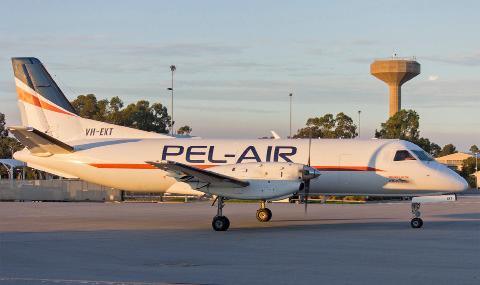
Following the termination of Airnorth’s 'zombie' Enterprise Agreement (EA) on 7 December 2023, Airnorth pilots operated on either the Air Pilots Award or, if they chose to do so, under individual flexibility agreements. Having pilots operating under different employment arrangements is obviously not ideal. It creates problems for not only pilots, but Airnorth itself.
We are pleased to report that a new EA was put out to vote and on 31 May 2024, a majority of Airnorth pilots voted for the enterprise agreement (with a 87% yes vote). The agreement is currently before the Fair Work Commission undergoing the approval process. We hope that the Fair Work Commission approves it quickly so that pilots can reap the benefits.
Notable improvements in the new EA include:
• The introduction of a productivity rate on a threshold of 60 hours for the E170/190 fleet and 50 hours for the E120 fleet in a 28 day period (in addition to an overtime rate for hours in excess of 152 hours in a 28 day period);
• 3.0% guarantee pay rises annually;
• Increases to meal allowances;
• Rostering protections; and
• Guaranteed resources for an Airnorth Pilots Consultative Committee for pilots and Airnorth to discuss rostering requirements and related issues.
Following the announcement of the loss of Airwork’s main TGE contract at the end of 2023, the net result has been the not unexpected movement of pilots out of Airwork into other operators, including into Texel Air Australasia, who have taken over the new contract.
While the EA negotiations were effectively ended with this announcement, thankfully those remaining pilots had an EA which delivered a CPI increase after the nominal expiry of their agreement of over 6%.
Recent meetings with the company have confirmed that it is highly likely that we should expect redundancies and that the company is currently seeking to minimise the number of pilot positions to be lost.
The company confirmed that should compulsory redundancies become required then the appropriate consultation will commence with the AFAP.
Currently there are two active enterprise agreement (EA) negotiations on-going with Alliance and (its subsidiary) Bravo. The two companies are persisting with their attempts to negotiate a single (joint) enterprise agreement (EA) covering Queensland-based pilots, and a separate joint EA covering Adelaide-based pilots.
The situation will get even messier, with Alliance having already promised that EA negotiations for their Perthbased pilots will start on 2 July 2024. When that occurs, only Darwin based Pilots with Alliance and Bravo will be without an active EA negotiation process on-hand.
Even with the two EA negotiations already underway, no significant progress in either negotiation has been made. In Queensland, the AFAP (along with the Transport Workers Union) recently wrote to Alliance and Bravo management, raising over a hundred objections to the content of a draft EA that management had unilaterally prepared. That is over one hundred issues still outstanding, after more than 12 months of negotiations.
At the same time, in Adelaide, pilot representatives in the EA negotiations were told in no uncertain terms by Alliance and Bravo’s lawyer that “negotiations are not capitulation”. Surprisingly, that was said during an EA meeting wherein Alliance and Bravo management effectively rejected 95% of everything that the pilot representatives were trying to negotiate for inclusion in their new EA.
With the two companies so staunchly refusing to offer suitable conditions and salary in either of the current negotiations, it is unclear where the current negotiations will end up. At some point soon all AFAP members at Alliance and Bravo are going to have to make a decision on what they want to achieve from the various EA negotiations. It will be a choice to accept poor quality EAs (compared to other recently negotiated EAs in the industry), or push back against management, in order to obtain much better conditions and pay.
Simultaneously, the issue of training bonds under the current Queensland Alliance F100 EA continues to be a major issue. Alliance has recently been requiring new F100 pilots in Queensland to sign training bonds, even though such an action is a breach of a legally binding ‘Undertaking’ that Alliance management agreed to back in August 2018, in order to ensure that the Fair Work Commission approved the current F100 agreement.
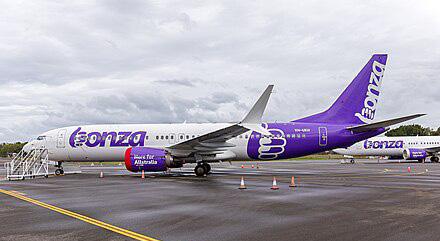
There have only been a couple of individual matters in dispute over recent months for members at ASL Airlines Australia. Eventually, both matters were able to be settled separately, after the intervention of the AFAP.
Meanwhile, there has been no further action by the Company to bring about its stated aim (announced several months ago) to have an enterprise agreement (EA) in place by 1 July 2024. Why this is so, is unclear. With new management, the AFAP was hopeful that there would be a strong desire to get an EA negotiated quickly, in order to resolve the various issues that the pilot group had with the former owners of Pionair, in relation to their pay and conditions.
Efforts to save the Bonza operation are not looking too positive at present. Admittedly, the idea of establishing and operating an airline to fly a multitude of routes not regularly serviced by the ‘bigger’ airlines in Australia, was always guaranteed to be a significant challenge.
Unfortunately, in mid-June, the appointed Voluntary Administrators went ahead and made all pilots (and other employees) redundant. This decision, whilst expected, will have a significant impact. In short, Pilots and most other employees will never receive the full amount of the monies that Bonza owes them.
Bonza's former employees (including AFAP members) are all waiting to see if they will have recourse to the Fair Entitlement Guarantee (FEG) scheme, run by the Federal Government. Unfortunately, that entitlement does not arise unless Bonza goes into liquidation. Even so, although the FEG scheme would pay former employees some of the money that Bonza owes them, it does not cover all forms of remuneration owed. For example, the FEG scheme does not pay out to ex-employees any unpaid superannuation payments, in addition to having certain weekly limits on the wages it will pay to each ex-Bonza employees.
It appears highly unlikely that employees will receive anything that they are owed from Bonza itself. Even if Bonza was placed in liquidation soon, ‘secured creditors’ (rather than former employees) immediately have first priority for the payout of any monies that Bonza’s appointed administrators may unearth.
The AFAP has surveyed the pilot group about pay and conditions and identified that any above-Award payments are marginal and incorporate some other Award payments (such as night operations and transport allowance).
This will continue to be carefully reviewed and the AFAP will assist members who are underpaid while seeking CAE address this issue. Information provided by the pilot group will be used to assist the AFAP in comparing remuneration at flight schools.
Recently CAE has reinstated training of the pilot group after some delays. The AFAP firmly believes that the Award limits the use of training bonds and will assist members requested to make such payments that contravene the Award. The AFAP will continue to assist members with issues due to the application of Award conditions, and asks members to remain vigilant regarding their entitlements.
A new enterprise agreement (EA) was voted up by CareFlight fixed-wing pilots on 21 March 2024, with a 100% yes vote of all pilots who voted.
Improvements gained in the new agreement include:
• Salary increases (including back pay) of 3.5% (1 May 2023), 5% (1 November 2023) – 3.5% (1 May 2024), 3% (1 May 2025), 3% (1 May 2026);
• Introduction of a $4,000 Northern Territory retention bonus; and
• Increases to amounts of additional shift payments.
Unfortunately, CareFlight has already delayed payment of increases to the next financial year, citing the “transformative” implementation of a new payroll system. It is disappointing that what is essentially a business process has taken precedence over the legal entitlements of CareFlight fixed-wing pilots.
The AFAP has notified CareFlight management that this is unacceptable. It was confirmed that the effect on the taxation of individual pilots had not been considered by CareFlight. The AFAP is considering its options to commence proceedings over the breach of the new enterprise agreement, including seeking penalties and will consult further with the CareFlight fixed-wing pilots.
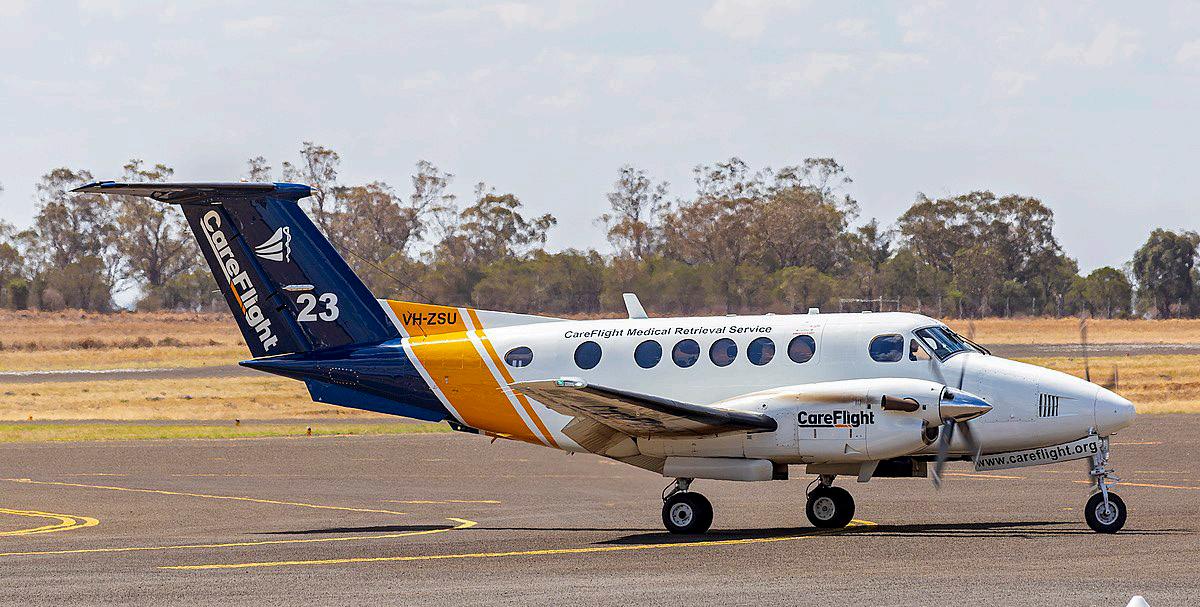
The CASA Enterprise Agreement 2023-2026 was approved and came into operation from 11 March 2024.
The Workplace Relations Group (WRG) committee met for the first time on 24 May 2024 to discuss the progress of the implementation of the new agreement.
The new Technical Consultative Committee is still to meet (will be ideally aligned to timing of the WRG). This is intended to be a forum for technical workers, including AFAP members in flying operations to discuss key matters relating to technical employees.
There are some key undertakings in the new agreement such as an agreement for CASA to propose a methodology regarding its workforce management and resourcing that is due for consultation.
Corporate Air continue to make procedural objections aimed at frustrating the legal process of a dispute in the Fair Work Commission. The latest is a ‘strike out application’, asking the court to throw out the case because Corporate Air does not know the case against them and therefore cannot respond. Of course, the company fully understands the case and we are confident the Court will see through this disingenuous application. At the same time we have made an application for discovery of documents, which is yet to be determined.
After almost four years elapsing since the nominal expiry of the 2016 enterprise agreement (EA), an in-principle agreement was reached in May for a new Surveillance Australia Pilot and Observer EA.
This resulted after a protected industrial action (PIA) ballot was approved and conducted (showing strong support for PIA) and three conciliation conferences before the Fair Work Commission. Happily, on this occasion, the in-principle agreement was achieved without the need to notify of any PIA.
Leidos is also the employer for pilots operating the AMSA Search and Rescue (SAR) contract. This contract provides SAR services using a fleet of Challenger 604 jet aircraft based in Perth, Melbourne and Cairns. The current EA expired on 1 January and negotiations have started for a replacement agreement..
The new enterprise agreement, approved in early December 2023, has now been in operation for approximately six months.
Although the new EA did not retain a number of beneficial conditions from the previous 1999 agreement, it does provide the current pilots with improvements, particularly higher remuneration levels.
The AFAP attempted to resolve some pilot underpayment matters via the Queensland Industrial Relations Commission without outcomes.
These matters after some time are now heading through the Brisbane Magistrates courts to directions hearings. Once directions are received we hope for a timely resolution through the courts to these matters.
The new Royal Flying Doctor Service Central Operations Agreement 2021 comes into effect on 25 July, it provides significant improvements in pay and conditions for the pilots until July 2027.
A new enterprise agreement (EA) was voted up by Royal Flying Doctor Service (Queensland Section) pilots in April 2024.
After some queries being raised about whether it could be approved because of issues in relation to bonding, the Fair Work Commission approved the EA with several undertakings at the end of May 2024.
The agreement provides these remuneration increases:
• 8% increase to base salary upon approval + $6,000 (industry allowance) (2024);
• 4% increase to base salary 12 months after approval + $6,000 (industry allowance) + $5,000 (retention bonus) (2025); and
• 3% increase to base salary 24 months after approval + $5,000 retention bonus (2026) (together with an amount representing back pay equivalent to 6% increase to base salary from 1 July 2023).
Although we did not achieve all that we set out to do during these drawn out negotiations, the pilots achieved an excellent base from which to commence the next round of negotiations in three years’ time.
The work of the AFAP pilots representatives James Bate and Leonard Nicholas was outstanding during the negotiations, with both devoting significant amounts of personal time to achieve this excellent result.

Bargaining for a section-wide Royal Flying Doctor Service (RFDS) South Eastern Section enterprise agreement (EA), intended to unify pilots based in Bankstown, Broken Hill, Dubbo, Launceston, and Essendon under a single enterprise agreement, has been ongoing since April of last year.
Unfortunately, various pauses to the bargaining process beyond the AFAP’s control have delayed the timely conclusion of the new EA.
Although the parties have only managed to convene one meeting this year, significant progress has been made on many of the AFAP’s claims.
However, several issues remain unresolved. In a positive interim development, the RFDS has agreed to and already implemented a key AFAP claim for pay parity with NSW pilots for Launceston pilots, based on their years of service with the RFDS. The revised pay rates have been effective since 1 January 2024.
This outcome is welcomed by Launceston-based pilots, demonstrating the RFDS's commitment to resolving differences between the two EAs and valuing all pilots equally based on their work rather than their location.
With the recent change in senior executive management, we are now waiting for the RFDS to come back to the AFAP with a number of revised positions.
We are optimistic that the company's response will satisfactorily address the outstanding issues between the parties, enabling the proposed EA to be finalsed and put to a vote by the pilots.
Several issues have arisen at Skytrans, that the AFAP has been informed of. For example, the training bond arrangement that a number of pilots had signed on starting employment, clearly did not accord with the provisions of the Air Pilots Award 2020.
The AFAP also has concerns that the company may not have fully adhered to several other Award provisions. The AFAP believes a number of these matters could be resolved permanently, if Skytrans management were agreeable to negotiating an enterprise agreement (EA).
Obviously, any EA would need to take into account the clear differences between the Company’s DH8 operations from Cairns, Rockhampton and Brisbane, and those of its C208 operations from Horn Island.
However, an effective EA could provide Skytrans with a document that is a significantly better fit for its operation than the Air Pilots Award 2020.
Like Airnorth, Skytraders was subject to a Zombie agreement that was due to terminate on 7 December 2023. Skytraders made an application to the Fair Work Commission (FWC) to have the Zombie agreement extended until 1 July 2024, in order for negotiations to take place for a new enterprise agreement.
Notwithstanding that the AFAP considered Skytraders had neglected addressing this issue in a timely manner, we did not object to the application being granted. The Fair Work Commission awarded the extension, which now runs out in a few weeks’ time.
Although Skytraders was made clearly aware of the time limits that it had proposed and requested, bargaining has not proceeded as quickly as the AFAP would like, particularly given the time limits. The AFAP has now filed a section 240 dispute requesting the Fair Work Commission to assist with bargaining, in particular for rostering issues.
Sessions are scheduled to commence at the FWC in early July. We hope that Skytraders approaches these sessions in a cooperative spirit, so that both pilots and Skytraders can achieve a quick and successful outcome.
The AFAP assists many members to recover underpaid wages. In 2024 this has resulted in hundreds of thousands of dollars being returned to AFAP members.
Other ongoing and unresolvedunderpayment cases are being escalated through the courts.
The Fair Work Act 2009 (Cth) includes increased penalties for wage theft, including underpayment.
The AFAP has assisted National Pilot Council (NPC) members in some of these situations:
• Full-time pilot paid only the classification salary and not the complete salary as defined in the Award (i.e. Salary + Additions to salary.)
• Casual pilots paid at varying rates, that do not comply with the casual/minumum rates in the Air Pilots Award 2020. There has also been miscalculated hours due to not utilising 'chock to chock' times for flying hours.
• Unlawful employer deductions from salary (or termination payments) without pilot's written consent. e.g. deductions for operational costs, employer loans (for currency training or training that are the responsibility of the employer under the Award), training bonds outside the scope of the Award or other employer payments that do not comply with the Award or the Fair Work Act 2009 (Cth).
For assistance contact: industrial@afap.org.au.
As the new National Jet Systems (NJS) Pilot Council committee moved into 2024 there have been ongoing pressures and challenges coupled with some improvements arising from the willingness of the Council to continually pressure the company to recognise the importance of crew retention.
The NJS Pilot Council committee has also consciously sought to undertake their meetings at every NJS base to continue direct pilot engagement. Having just concluded a member meeting in Sydney the next scheduled stop will be the Canberra base.
The Council also welcomes Capt Paul Davison, from the Brisbane base who is also assisting three current reps of Capt Anthony Clouting, FO Eric Galliers and Capt Justin Gordon.
A long running campaign of the NJS Council has been to seek to have NJS amend its requirements for First Officer (FO) upgrades onto the A220. Initially and inexplicably NJS applied the qualification that an upgrade would require 150 hours on type.
Dependant on where the new aircraft were introduced the real fear existed that this could result in FOs being bypassed by less senior crew from another base who have secured the necessary 150 hours on the A220.
After many months of pressure the company has now agreed that the standard upgrade of 150 hours (and six months) within NJS would be all that was required. This has been well received by the FO group and is a good example of the positive result of the establishment of the new Council.
Another long running drive from the NJS Council committee has been to regularly explain to the company that, with the need to recruit significantly into NJS, coupled with the fear from current pilots that any influx of pilots may impact their ability to move to a base of their choice, the company should have an open EOI process to enable current pilots to move to a base of their choice.
After months of pressure NJS agreed to have a one off open EOI to enable current pilots a choice to bid and move to a base by mid 2025.
The results of this process are to be published soon and again this is a good win for the pilots and the NJS Pilot Council committee.
The company recently announced it needed to introduce DETCs into the A220 fleet operation to enable the significant growth in trained A220 pilots needed to operate the new fleet. While not ideal the NJS Council committee pressed for and obtained the agreement that any DETCs would only enter on the bottom of the seniority list and only at the Melbourne base. The real problem though is that the current EA doesn’t encourage either Training Captains or new FOs to join NJS.
A large remaining challenge for NJS is the long running disquiet among pilots since the last EA deal was rushed though at the tail end of the pandemic. Qantas threatened that without the new agreement (which dramatically reduced some key protections) the A220 aircraft would be introduced elsewhere. While these threats were likley impossible to realise, uncertainty during this period resulted in the EA being approved.
Scroll forward a couple of years and with the extreme tightening in the pilot market it was clear (following both AFAP surveys and company surveys) that the majority of the current pilot group were considering leaving the operation after securing their A220 endorsement. The company has now belatedly accepted the short-sightedness arising from forcing through the last EA and has accepted that it needs to improve the terms and conditions within NJS.
The main problem seems to be how they do this, as Qantas management seems paranoid that any improvements will have a flow on implication to the Network arbitration and consequently don’t know what to do. As a result the NJS Council committee continues to press NJS to urgently address this problem as NJS pilots are well aware that their EA pales by comparison with other EAs enjoyed by pilots in Australia.
The coming year will clearly be a very important one for the introduction of the A220 coupled with the B717s finally leaving in October 2024.
Having previously co-facilitated this course in Luexembourg, Singapore and Tokyo, AFAP Safety & Technical Officer Lachlan Gray will next co-present IFALPA's Fatigue Management training course on 29-30 July at the AFAP's Brisbane office with Captain Mark Glover (from the New Zealand Air Line Pilots Association) .
This specialised training course will be delivered (for the first time in Australia) to a select group of experienced AFAP pilot representatives and others from the industry.
For more information, contact lachlan@afap.org.au
The AFAP's Safety & Technical (S&T) Committee represents and promotes the interests of Australian professional flight crew and to champion the highest possible standards of aviation safety.
The S&T Committee is mainly concerned with ensuring that proper safety standards and practices exist at all levels of the commercial aviation industry. It consists of a Safety & Technical (S&T) Director, pilot representatives from the AFAP membership, and the AFAP's S&T staff.
Captain Philip Remilton is the current S&T Director and is responsible for representing the Federation on safety and technical matters affecting aircraft operations, passengers and crew.
If you are interested in becoming involved, please contact the S&T Director via technical@afap.org.au

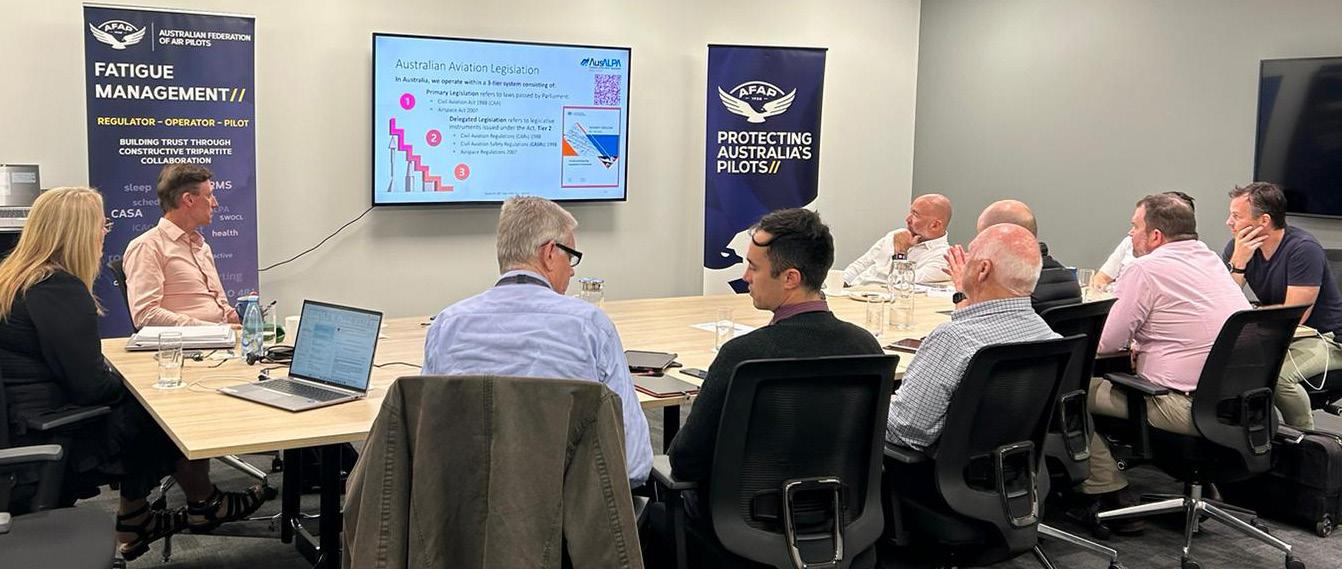
Negotiation Training is designed to provide attendees with the skills and resources needed to become an effective industrial negotiator.
Last held at the AFAP's Brisbane office on 4 June, participating members gained further insight into the legal and industrial framework in which enterprise agreement negotiations take place and learned more about the role of an AFAP pilot representative.
For more information, contact industrial@afap.org.au.
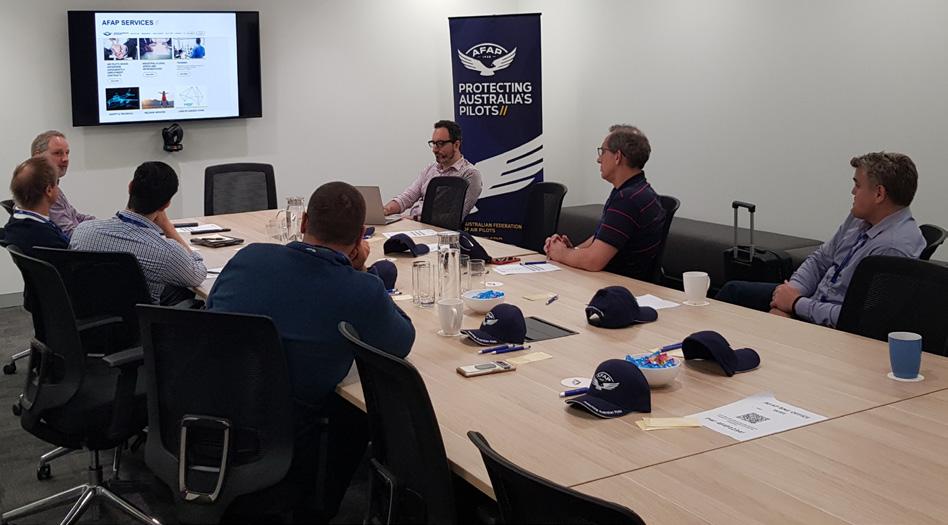
Accident & Incident Training provides attendees with an understanding of the regulatory framework underpinning accident investigation in Australia,.
Run exclusively for our members, the course also covers pilot's rights, responsibilities and obligations in the case of an accident or incident and the practical steps to follow in order to protect their interests.
This popular course was last held at the AFAP's Brisbane office on 5 June and will be rolled out again in 2025.
For more information, contact technical@afap.org.au
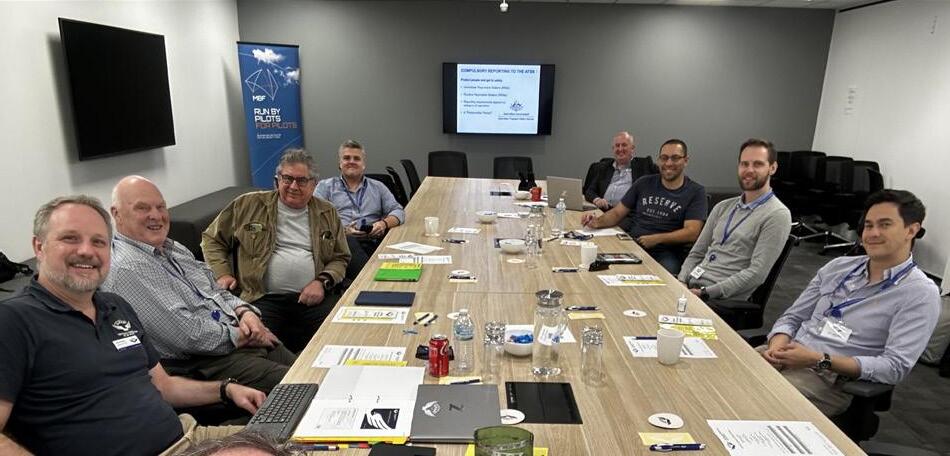
Leading Edge Workshops provide valuable mentoring from experienced pilot members in a group setting. Coming up in the second half of the year are • Workshop 3 – Coping with your first scare
Workshop 4 – Saying ‘no’ the right way
For more information, contact: events@afap.org.
Last year the inaugural Qantas Pilot Council (QPC) Committee was formed. This first AFAP QPC committee is made up by:
• Michael Egan Chair
• Mark Gilmour Vice-Chair
• Daniel Kobeleff Secretary
• Michael Armessen Committee Member
The QPC committee has been extremely busy since its inception, meeting regularly and providing frequent updates to members on Qantas matters and bargaining.
Their work is also translating to steady growth in AFAP membership numbers at Qantas. In fact, due to the continued growth in AFAP membership at Qantas, the 2024 AFAP QPC committee elections will see an expansion in the QPC Committee size from its current four members to seven members.
This growth in membership size has come with a corresponding growth in enquiries and issues needing to be raised with Qantas management.
Recent matters which have been raised include:
1. The allocation of base transfers - why base transfers on same type are not allocated ahead of new hires;
2. FO A321 positions - whether SOs (particularly those with previous A320 experience) are eligible for the initial allocation of A321 positions; and
3. Various Long Haul divisor and rostering questions.
There are also a surprisingly large number of potential underpayment matters. These have predominantly occurred when pilots have been disrupted and extended while on a trip and when training overseas.
Another matter involving the need to provide substantiation of expenses when training out of base has proceeded through the dispute resolution procedure of the agreement and is now set to be escalated to the Fair Work Commission.
On top of the growing number of individual industrial matters which the AFAP QPC are dealing with, bargaining for the Short Haul Agreement is well underway and Long Haul Agreement bargaining preparation is gearing up rapidly.
The Qantas Short Haul EA expired on 30 August 2023. Since then we have held numerous bargaining meetings with Qantas management.
Ahead of these meetings we surveyed our Qantas members in order to develop a log of claims. The survey and feedback from Qantas Short Haul pilots is that the current EA is too flexible for the Company and needs to provide for:
• Increased days off and protections around those days off;
• Increased salary in line with actual inflation figures so that the pilots are not going backwards financially;
• Greater pay certainty (such as pattern protection if disrupted in a live roster);
• Improved density of flying (through higher Minimum Guarantee Hours/implementing Ratio In Guarantees).
Very early in negotiations Qantas Industrial Relations (IR) personnel confirmed that the Qantas Wages Policy does apply to the negotiation of the Qantas Short Haul Agreement and this means that all Short Haul pilots will be subject to a two-year wage freeze before salary increases of 3%.
Qantas IR also confirmed that Short Haul pilots would be eligible for the $5000 recovery boost payment providing an agreement is reached within nine months of the expiry of the current agreement (which because the current EA expired on 30 August 2023 has now lapsed) and all other eligibility conditions are met, such as the pilots do “not cause harm” to the business.
Qantas IR has also advised it will not recognise the savings from the efficiencies that were provided in the Short Haul Agreement variation (such as the removal of various work rules and the geographic box in exchange for an undertaking to provide the first 20 x A321-XLR replacement aircraft).
To say that Qantas IR is making the negotiation of an acceptable agreement extremely difficult in the current environment is an understatement.
While not calling it a formal offer, more recently Qantas has outlined the framework of what it would see as an acceptable proposal.
The first thing to note about their current proposal is that it does nothing to address our number one log of claims item and survey result for “Increased days off and protections around those days off”.
It also maintains the two year wage freeze and refuses to recognise the efficiencies it extracted in the variation under the threat of not providing the A321 as a replacement aircraft for the B737.
The company's current proposal provides for:
• A 4 year term;
• Headline salary increases of 0% (2023), 0% (2024), 3% (2025), 3% (2026), 3% (2027);
• A new 5th year increment to the pay structure (worth 2.5%);
• An increase in the Minimum Guaranteed Hours (MGH) up to 62 hours;
• 4 hours credit for reserve;
• Improved guaranteed pay for Trainers; and
• Some guarantees around pay when flying is changed or inefficient, such as a DPC60 (essentially a 60% duty RIG) and an Average Daily Credit to domestic and international multi-day trips but only for those trips with a planned slip of 30 hours or more..
For these modest improvements in what has been a high inflation and high pilot demand period, Qantas is seeking:
• The ability to recruit directly to the Short Haul Agreement (currently all Qantas recruitment is via a Second Officer position on the Long Haul Agreement);
• Reductions in personal flying for trainers;
• The rules which were incorporated in the variation for A321 flying to apply to both the A321 and B737;
• Changes to contactability (replacement of the 'tap on the shoulder' when finishing a duty with an electronic notification of a roster change which must be accepted);
• Dilution of the requirement for business class duty travel on an opt in basis with a payment negotiated outside the EA; and
• Removal of the entitlement to F class overseas duty travel.
At our last meeting Qantas inferred that, from their point of view, bargaining had almost been exhausted and if in-principle agreement with at least one bargaining representative was not achieved very soon that the proposal may be put to pilots unilaterally.
It seems that, despite the rhetoric from some parts of the business, the hardline industrial culture of Qantas remains alive and well.
The current Long Haul EA expired on 28 April 2024. It seems clear to us that Qantas is hoping to resolve the Short Haul EA before seriously tackling the Long Haul EA. No doubt they would also like to flow any efficiencies and precedents they achieve at Short Haul, such as the dilution to duty travel entitlements, to Long Haul pilots.
Despite the slow commencement of bargaining from Qantas, the AFAP QPC has been very active in preparing for negotiations. The AFAP has formed an active Long Haul bargaining committee and a detailed survey of members is being finalised. Because our numbers continue to grow we have not wanted to release this survey until we are confident bargaining has commenced in earnest. As per our usual practice, this survey will form the basis of our log of claims.
As we have also said before, while we would embrace interest-based bargaining with an employer that had a genuine commitment to it, Qantas is not one of those employers. Concepts of interest-based bargaining are misplaced when it comes to Qantas.
Fixed wages policies and threats of removing bonuses or not allocating replacement aircraft are the complete opposite of an interest-based approach to bargaining. Qantas only understands and responds to power, be it industrial power, market power or legal power. Attempting interest-based bargaining when one party is not committed to it is not a more sophisticated approach. It is naïve.
The AFAP has a growing number of Qantas pilots joining or enquiring about joining the AFAP. This support is welcomed as increased membership will improve our role and bargaining power in the upcoming negotiations.
Any member interested in developments at Qantas, or Qantas pilots interested in joining the AFAP, can contact Executive Director Simon Lutton ( simon@afap.org.au ), Melbourne-based Senior Industrial/Legal Officer Pat Larkins (patrick@afap.org.au) or Brisbane-based Senior Industrial Officer Chris Aikens (chris@afap.org.au).
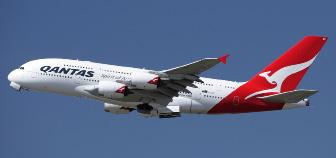
The AFAP has reached in principle agreement with Virgin for a new Narrow Body Enterprise Agreement (EA) after nearly 12 months of negotiations.
On 18 June the final document was released for a vote of the pilot group. The vote will close at the expiry date of the current EA on 30 June.
The proposed 2024 EA provides an opportunity for pilots to move away from the 2021 EA which was a temporary “emergency” EA negotiated during administration, with backpay to the first pay period after 1 July 2024.
The key elements of the AFAP negotiated package include:
• 31.89% increase in guaranteed income on commencement
• Reintroduction of Training Pilot % allowance (10%TC/TFO, STC13%, 16% CTCA)
• 12.67% increase to effective base hourly rate on commencement
• Productivity Rate reintroduced: 23.81% increase
• Annual Retention Payment for each year the EA is in operation
• DTA now paid on day trips, ground duties, admin ($7.77 hour, 3% increases annually)
• 9.3% increase to tax free overnight allowances (both ranks)
• IDTA additional payment on top of ODTA for international layover
• Loss of Licence 6.1% from May 2025 – then 3% annually
• Sim Instructor/ground 5.5 Credits all ranks (excl. NTS/SEP)
• Cancelled Accom 3% increase and annual increases
• Ad Hoc Training 9.3% increase (3% thereafter)
• PDO doubled from 4 to 8 per year
• PDO Christmas Day rotating allocation commencing in 2025
• Enhanced PT provisions including 15% minimum access
• Introduction of a Flexi Line arrangement for full time and part time carers
• C&T pilots (excl. TC) increased personal flying
• OWT provisions and credits
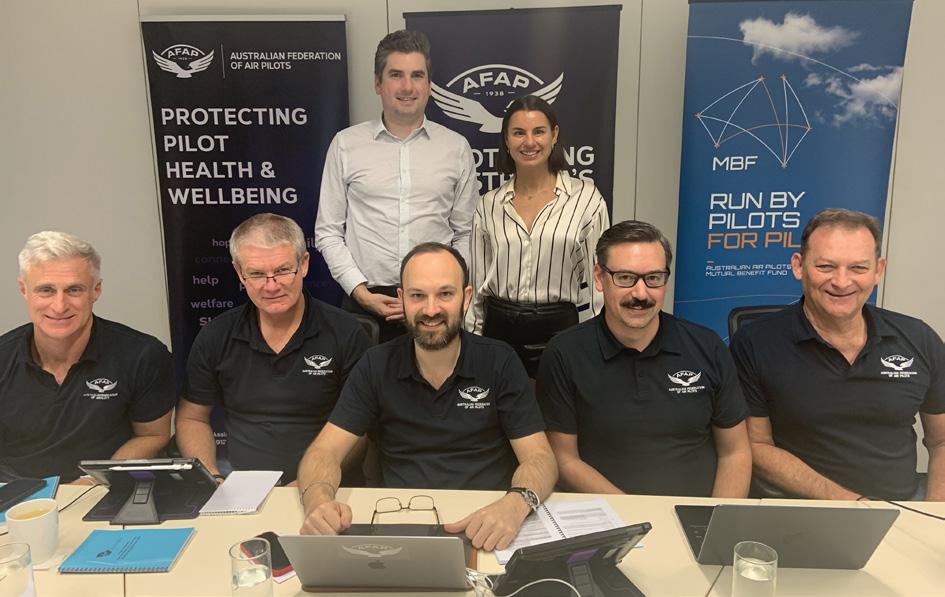
The AFAP also retained critical industry leading fatigue and lifestyle protections:
• 150 DDOs per annum (11 in 6 peak 28 day RPs, 12 in 7 off peak 28 day RPs)
• The existing hybrid FDP table included as a term of the EA (which is more limiting than any other FDP table in the industry);
• DDO hours of 60 hours and 3 local nights that are around 2 days off (+ 24 hours for a further DDO)
• 15 hours home base rest

The AFAP also locked into the agreement several critical entitlements that had been introduced outside the current EA after lobbying from the AFAP with support from pilots:
• Duty RIG of 50%
• Rostered Credit Protection as a term of the EA
• Standby minimum 4 hour Credit (incl. when not used)
• Enhanced positioning Credits from 2021 EA as a term of the EA
• Opt-in 5/6 day trips formalised in EA with Trip RIG (1:4)
The proposed EA was achieved through offsets which is primarily the return to the 2018 EA minimum days off (with one additional DDO compared to 2018 being 156 down to 150 per annum).
This is six less days off than the 2021 EA minimum however that came with a lower guaranteed base, flat hourly rate and no minimum payments for working on a day off.
With the reintroduction of a higher base and a productivity hourly rate the AFAP position is that it was reasonable to trade these days for significant additional guaranteed income, particularly when Virgin will still have more DDOs and better DDO buffers than both Qantas and Jetstar.
The Company also focused on higher availability at peak periods, with the reduction in minimum leave slots from 10% to 7.5%. The AFAP negotiated that this is tied to the introduction of a multi-ballot annual leave system that will give more pilots access to peak periods of leave each year. The 7.5% minimum is still higher than Jetstar and Qantas.
The AFAP has also negotiated the introduction of fatigue credits, which provides protection of a pilot’s income if they remove from flying due to operational fatigue. The AFAP has adopted provisions in the proposed EA that are drawn from USALPA contracts in the US airlines.
This represents the first time an Australian operator will include these provisions and we expect it will drive changes to pairings or other work related issues (such as hotels) if pilots are reporting and removing from duty as a result.
The AFAP has negotiated a package that represents an improvement on the pilots’ pre-covid/administration conditions from the 2018 EA and a REM package that moves in line with CPI in the intervening period between 2019 and 2024
After nearly two years of bargaining, the VARA Enterprise Agreement 2022 was voted up by pilots on December 21 last year. The Agreement was approved by the FWC to operate from 19 February 2024.
The 2022 agreement was a short term deal (it will expire on 30 June 2024) and the parties started bargaining for a replacement EA in March this year.
The scope of bargaining for a new EA was initially for an A320 operation only, with the F100 fleet exiting and the F100 pilots planned to transfer to B737 and coverage of the Virgin Narrow Body Enterprise Agreement 2024.
However, in early March VARA announced it was exploring the purchase of a new Regional Jet to continue operating into airports in WA that would not take a B737-700.
The regional jet being considered is either an Embraer E190-E2 or an Airbus A220. Subsequently, bargaining has included discussions on rates for a new regional jet, with these to form part of the business case presented to the Board. A decision as to whether VARA proceeds with the purchase of a new Regional Jet is expected soon.
The AFAP focus has been on securing improved terms and conditions for our A320 members with retention of pilots proving challenging with alternate pilot roles available in Perth.
The outcome of the Virgin B737 EA negotiations will also be influential on bargaining with a lucrative deal out to vote and VARA Pilots now having Group seniority to access Perth based B737 commands.
VARA has presented the outline of a deal with the AFAP now considering how best to respond.
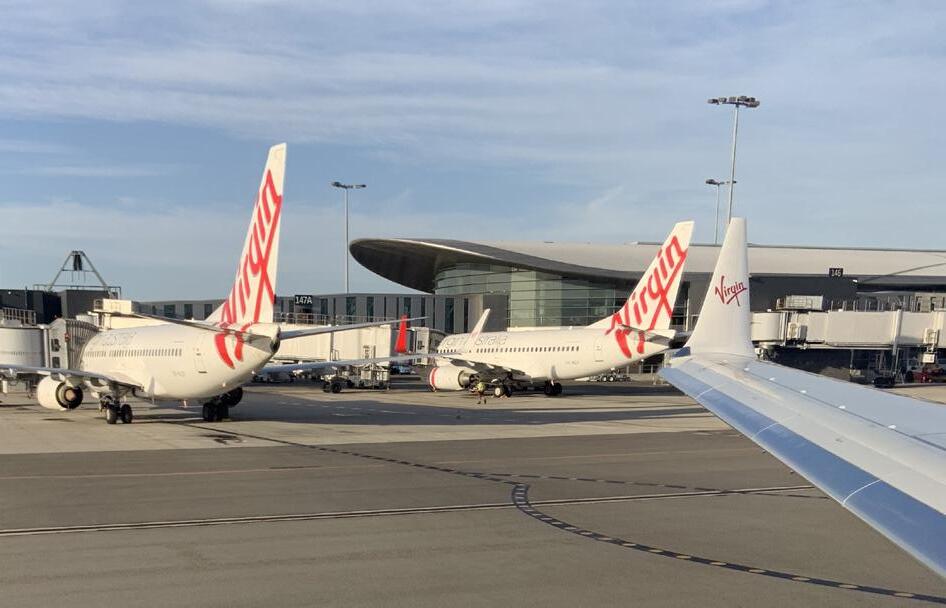
Jetstar has continued actively recruiting in the first half of 2024, with 160 new hire pilots expected to join the business throughout this year. Additionally, numerous promotional opportunities have been available for existing pilots.
Earlier this year, Jetstar advertised 37 narrow body command positions, of which 13 initially remained unfilled in Perth and Sydney. This resulted in Jetstar implementing several measures to fill these positions internally before considering direct entry captains (DECs). These measures included:
• Revising the minimum command selection criteria for pilots with significant prior experience.
• Relaxing restrictions for frozen wide body first officers to bid for narrow body command positions.
• Allowing wide body captains to bid back to narrow body commands in Perth.
Ultimately, all but one narrow body command vacancy in Perth remained unfilled, with this vacancy subsequently being filled by a direct entry captain from Jetstar NZ.
There will be further narrow body command opportunities advertised later in the year to align with crew resourcing requirements based on the Northern Winter schedule. While it is currently uncertain whether more DECs will be needed, the AFAP has and continues to advise pilots seeking a command at Jetstar not to wait for opportunities in their preferred base. Given the cyclical nature of the aviation industry, we are conscious that command opportunities can be scarce and sporadic and the music will eventually stop, so the speak!
In response to significant pilot dissatisfaction with rostering and bidding outcomes, Jetstar has recently established a JBid Rostering Practices Review Working Group. This working group will thoroughly reviewing the current rostering processes and the JBid bidding system and includes pilot representatives from the JPF along with management/representatives from Flight Operations, Workforce Planning and the Jeppesen team
The JBid/Roster Review Working Group's first meeting was held in May, providing a platform for all stakeholders to collaboratively discuss recent JBid survey responses, different bidding models, roster quality, and the impact of pairing construction on rosters.
The meeting was highly productive, with your representatives highlighting key pilot concerns, including:
• Minimal success with Day-Off (DDO) requests
• Unnecessary pax flights
• Unnecessary overnight stays
• Min Off-Duty Periods (ODPs) down route & at home base
• Base-wide roster balancing
• Costs associated with constant roster disruptions
The JBid/Roster Review Working Group is scheduled to convene monthly for at least the next six months. There is cautious optimism from the JPF that this collaborative effort will lead to improvements in both JBid and overall roster satisfaction.
Acknowledging the number of Jetstar pilots not currently in their preferred base, the AFAP recently proposed a Base Swap initiative. This allows pilots on the same fleet, rank, and employment type to engage in a temporary roster swap for up to four roster periods.
The proposal outlined a transparent process for pilots to submit their application for a base swap, which would then be published on a list of available swaps on JEN (intranet), with seniority determining which swaps would be approved. Jetstar agreed to this and has adopted it as a Voluntary Temporary Transfer – Base Swap.
This initiative will provide more flexibility and job satisfaction by allowing pilots to temporarily work from their preferred base while working as commuting pilots.
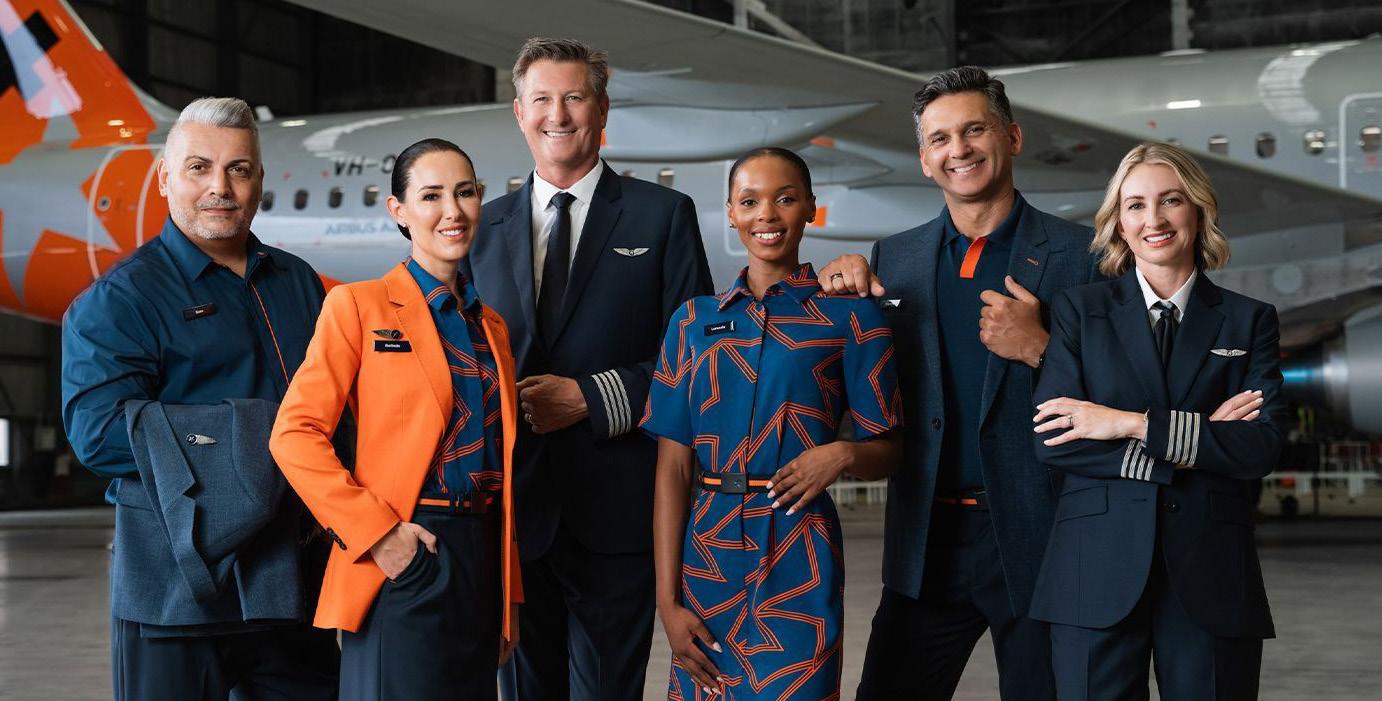
Jetstar’s new uniform, launched as the airline celebrated its 20th birthday in May, includes a pilot collection featuring a new tailored suit in navy paired with the option of a slimline tie or a neck scarf. In response to crew feedback, the look of the airline’s epaulets, braids and wings badges were overhauled. Jetstar pilots Captain Rosina Helbig. (far right) and Captain Jeremy Schmidt (third from left) modelled the new pilot uniform at a launch in Melbourne.
The arrival of 2024 brought a successful conclusion to the EA negotiations with the ballot of the Sunstate pilot group delivering nearly 80% in favour of the new Agreement.
The negotiating path had been difficult, but the willingness of pilots to vote for PIA if needed, clearly turned the tide of negotiations.
The end result is one on the most significant EA results in a long time. The deal was approved by the FWC in late January, becoming operational in early February.
There are some significant new elements of the deal (new allowances, payments for day off buy back) that will require monitoring over time, but the Sunstate Pilot Council (SPC) committee has reported overwhelming satisfaction amongst the pilot group to the new EA.
One key aspect of the new EA is the company's intention to move towards a pilot establishment that would enable the provision of 10 days off per roster period (as opposed to the current 9 days plus one buy back).
Currently the low pilot numbers in Sunstate are negatively impacting factors like late finishes, call-ins on days off and equitable workload distribution.
Consequently the (SPC)committee will monitor establishment numbers during the life of the agreement to ensure we ultimately achieve 10 days off per roster by the time we start negotiations on the next EA.
Due to the turnover of pilots within QantasLink generally and the number of new pilots in the group, the Council has started to provide guidance tips around the unique Sunstate roster request system which is predicated on an equal distribution of work rather than a traditional seniority system.
While the success rate for obtaining days off was very good (around 90%) the success rate for obtaining trip bids was not as good, and so it will be the intention to periodically keep the pilot group up to date with request practices to maximise success.
The company has recently introduced a Flight Pulse App which enables crew to access their flight data in approximately 5 to 6 days after a flight. This has raised some questions including how the timely access to stats could both subconsciously and consciously impact how a flight crew member operates.
Other issues include the privacy of the data and how it would co-exist with the current FOQA system, that was handled within tight restrictions and required ongoing agreement of the Sunstate and Eastern Councils (as it was a joint agreement).
In light of these concerns the SPC committee will be seeking to meet the company to discuss and clarify some important issues arising from the app’s introduction.
Following a few movements of reps during 2023 the full council has now been up and running for few months which has once again proven to be fundamental in ensuring that AFAP membership density at the Sunstate operation remains encouragingly high at around 93%.
The full SPC consists of Capt Jarrod Blaker (Chair), Capt Anthony Berko (Vice Chair), Capt Richard Copland (Sec), Capt Thomas Dunphy, Capt Dan Lyons, Capt Louise Pole, FO Bianca Salim and Capt Russell Thompson..
"AFAP membership density at the Sunstate operation remains encouragingly high at around 93%."

HNZ/PHI continues to resist and fight every step of the way when negotiating new agreements or resolving issues in the current agreements.
This is disappointing. From around 2016 to 2021 the relationship between the AFAP, pilots and the company was built on mutual respect and cooperation where issues could be resolved by a phone call and disputation was avoided.
The last real dispute prior to that period involved the annual leave/National Employment Standards (NES) dispute in 2015 in which the Full Bench of the Fair Work Commission (FWC) held denying pilots a choice when they take annual leave offended the NES.
Even though the FWC found in favour of the pilots, the company and the AFAP were still able to work through the decision to try and find an agreeable compromise. Instead of the company going to “war” the AFAP/the then pilot reps and the Company reached EAs that provided pilots not only an option of rosters, but the right to take annual leave at times agreed.
Each of those agreements remain in place in the Kimberley, Pilbara, Gascoyne and the Northern Territory. However, the company in more recent years has discarded the previous co-operation and has aggressively refused any pilot a say in their roster and accruing and taking of annual leave. This approach has now extended to other entitlements such as DTA and underpayments.
The annual leave dispute, which has already been referred to the FWC is awaiting resolution. While the AFAP and members remain willing to negotiate a compromise settlement, the company is yet to respond.
However, the annual leave dispute has revealed a new response from the company to try to avoid or, at best, delay dealing with disputes. The default of choice from the company now is to argue the FWC does not have the “jurisdiction” or power to deal with the dispute. In the case of annual leave the company tried to argue that no pilot was actually in dispute about not being allowed to agree when they take annual leave.
The company ran that argument in a hearing and comprehensively lost. All the company achieved was thousands of dollars spent on lawyers.
That now means unless a settlement is agreed the substantive annual leave dispute will be heading for arbitration.
Obviously with unlimited money to spend on lawyers arguing jurisdictional objections to avoid addressing and resolving genuine disputes, the company is applying that strategy by again arguing “jurisdiction” against three casual pilots who are seeking underpayments, where each of them are paid differently but there is only one casual rate and formula.
The FWC has scheduled a program for the company’s jurisdiction case to be heard, with the date set for 2 July.
More recently, the company has ceased paying all pilots across the above four agreements DTA entitlements. This dispute has been notified to the company, but yet to be referred to the FWC. Currently the AFAP and company are exchanging views and arguments on the respective merits of the dispute.
However, what is now the company’s fall back absent any defence to a dispute, unsurprisingly, the company has already foreshadowed, even before the DTA dispute has been referred to the FWC, its intention to object to the hearing ... arguing “jurisdiction”.
The company has now set in stone its fall back to responding to grievances and disputes - resist dealing with and addressing employee concerns and at every stage try and avoid or delay the independent umpire resolving the dispute.
This new approach to employee/industrial relations and grievance management does nothing for morale and workplace relations, and is such a long way from the previous relationship where issues were addressed cooperatively and often by a “phone call”.
This segues to the current Boome/Truscott enterprise bargaining. Again, and probably more symptomatic of the aggressive and resistant approach to employee relations, the company recently issued a proposed new enterprise agreement for vote.
Consistent with the company’s above new approach to grievance/dispute resolution – delay by jurisdiction –while the proposed agreement had several deficiencies and pitfalls, the company sought to slash the breadth of issues in which pilots could raise a grievance or dispute about and have resolved (including before the FWC) –just too obvious really given the above.
Hence, whenever a dispute or grievance is raised ... the company will call “jurisdiction”.
It is unsurprising that the proposed agreement was voted down. Hopefully, when negotiations resume, of which the company has committed to, a more cooperative and pragmatic approach will be taken.
As usual for these circumstances, the AFAP is presently surveying members with a view to reflecting their aspirations and the objective of reaching agreement. Discussions have not commenced.
In contrast, CHC Offshore members have voted up their recently negotiated and agreed enterprise agreement providing certainty for the next three years.
The negotiations however were not immune from a sustained campaign of protected industrial action, provoked by the company’s refusal to meet for over a month. When the company did meet, and with the assistance of the FWC, an agreement was reached within days, leaving the AFAP and reps bemused and confused as to why the company refused to meet.
However, a dispute has subsequently emerged involving an under (non)-payment of a longstanding entitlement where a pilot flies in excess of four hours. The company is arguing it agreed to the entitlement by mistake and is refusing to pay.
The dispute has been referred to the FWC from which the parties have held discussions to try and settle the dispute by agreement.
At this stage no agreement has been reached, and now appears less likely as the company (only weeks after agreeing the new enterprise agreement that includes the so-called disputed clause) has applied to have the FWC vary the agreement to remove or change the entitlement. The disputes will be re-listed by the FWC.
It is nothing but frustration at OffShore Services Australasia (OSA), the former Babcock offshore business now owned by CHC.
The parties have long agreed the adoption of the CHC offshore terms and conditions, for obvious reasons, subject to any specific terms applicable to OSA and, where applicable, necessary “grandparenting” to ensure no one falls behind.
The parties have also long agreed the actual terms of the agreement to be put to vote. However, inexplicably the company, despite repeated promises, and then equally repeated reneges, refuses to do so, causing immeasurable frustration and distress for the Reps, pilot body and the AFAP.
Consequently, as a last ditch resort, the AFAP/reps have renotified the company of intention to resume protected action. This is virtually a re-run of recent activity where the company reneged on various agreements and then refused to progress the negotiations.
On notification of PIA the matter was referred to the FWC, the company agreed the outstanding matters and to progress to vote - in good faith PIA was withdrawn.
This time it is unlikely the PIA will be lifted without the voting process having commenced. Again, we hope to report a positive outcome in the next edition of Air Pilot.
Auriga was subject to a majority support determination (MSD). After months of 2023 lost to delays and lack of progress, after a positive Protected Action Ballot application before Christmas and a week of intense negotiations an in-principle agreement was reached.
The parties have progressed positively towards a comprehensive agreement to the point we trust by next Air Pilot we can report on an Auriga agreement.
In the meantime, in a significant development, the longstanding Karratha MPT has been awarded against PHI (a contract it held dating back to Helicopters Australia days) in favour of Auriga which it took over on 1 May.
The AFAP looks forward to continuing our positive relationship with Auriga, both generally and in relation to Karratha.
Finally, we are hopeful the long-running dispute and bargaining involving LifeFlight is drawing to a close. At the last report pilots were voting on a new enterprise agreement that, if voted up would have also addressed to finality the indexation/underpayment dispute.
That proposed agreement was voted down. That prompted a revisit of the bargaining with a view to improve the package to facilitate next time a positive vote. Unfortunately, the company resolutely refused to cooperate and instead merely resisted trying to resolve any outstanding matter to improve the agreement.
Unsurprisingly, the AFAP was compelled to make application to the FWC for a protected action ballot order. That was opposed by the company which caused the application to be arbitrated by the FWC. The AFAP succeeded in that arbitration, the application was approved, and the Orders granted.
Under new Fair Work legislation, prior to the protected action ballot (i.e. results) being declared, the FWC must hold a compulsory conference of the parties to try and reach agreement or at least narrow the differences.
That responsibility was allocated to Commissioner Riordan who, by close on 4 June had assisted the parties reach in-principle agreement with only the details to be resolved and finalised. The results of the ballot were declared the following day with overwhelming support for protected action and each of the actions.
Although we have in-principle agreement, and with the final drafting to be completed, should for whatever reason the bargaining and that process fall over, members retain the right to protected action, as they do on voting for an agreement.
While the drafting process is yet to be concluded, however, we are hopeful of a positive outcome.
A new book titled 'A Poisonous Affair - The Airline Dispute'' has been published by long time AFAP friend and supporter Morna Kenworthy.
Married to former Ansett Captain and dispute pilot Capt Bill Kenworthy, Morna had a detailed involvement in the dispute, helping with AFAP communications, attending court hearings and providing support to AFAP members, affected families and staff throughout this turbulent period in Australia’s aviation history.
In A Poisonous Affair, Morna provides a detailed account of the events and political machinations surrounding the 1989 Pilots’ Dispute which is widely regarded as one of the most expensive and dramatic industrial disputes in Australia's corporate history.
"After obtaining legal advice ... 1647 men and women resigned from their employment with the airlines on 24 August 1989."
Over almost 700 pages, it minutely details the dispute’s development, with the emphasis on the effect it had on the people intrinsically linked to that disastrous time.
The AFAP recommends this book to anyone who wants to learn more about the dispute. Copies can be purchased (A$39 including postage) by contacting Morna Kenworthy at mornank@hotmail.com
The AFAP, publishes a magazine twice a year in June and in December. Back issues can be accessed or downloaded from:
AFAP website – Visit AFAP Publications Mobile devices – See Issuu on mobile devices & tablets
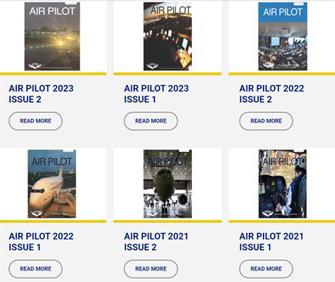
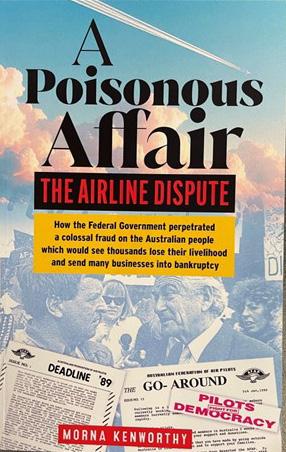
'A Poisonous Affair ' reveals the intensely human side of a disastrous episode in Australia's corporate history.
The AFAP, independently or as part of the AusALPA partnership, has been busy in advocating our key safety concerns, including through making various public submissions to the Government and its agencies.
Key advocacy initiatives so far this year have included:
• Safety Bulletin on TIBA Airspace
• Safety Bulletin on Aviation Rescue and Firefighting Services (ARFFS) in Australia
• AFAP made a submission and presented evidence in person to the Australian Senate's Rural and Regional Affairs and Transport Committee Inquiry on the impact and mitigation of aircraft noise, and later provided detailed responses to questions on notice by senators involved.
AusALPA provided submissions to the Department of Infrastructure and Transport's consultations on the State Safety Program (SSP), the National Aviation Safety Plan (NASP) and the National Air Navigation Plan (NANP).
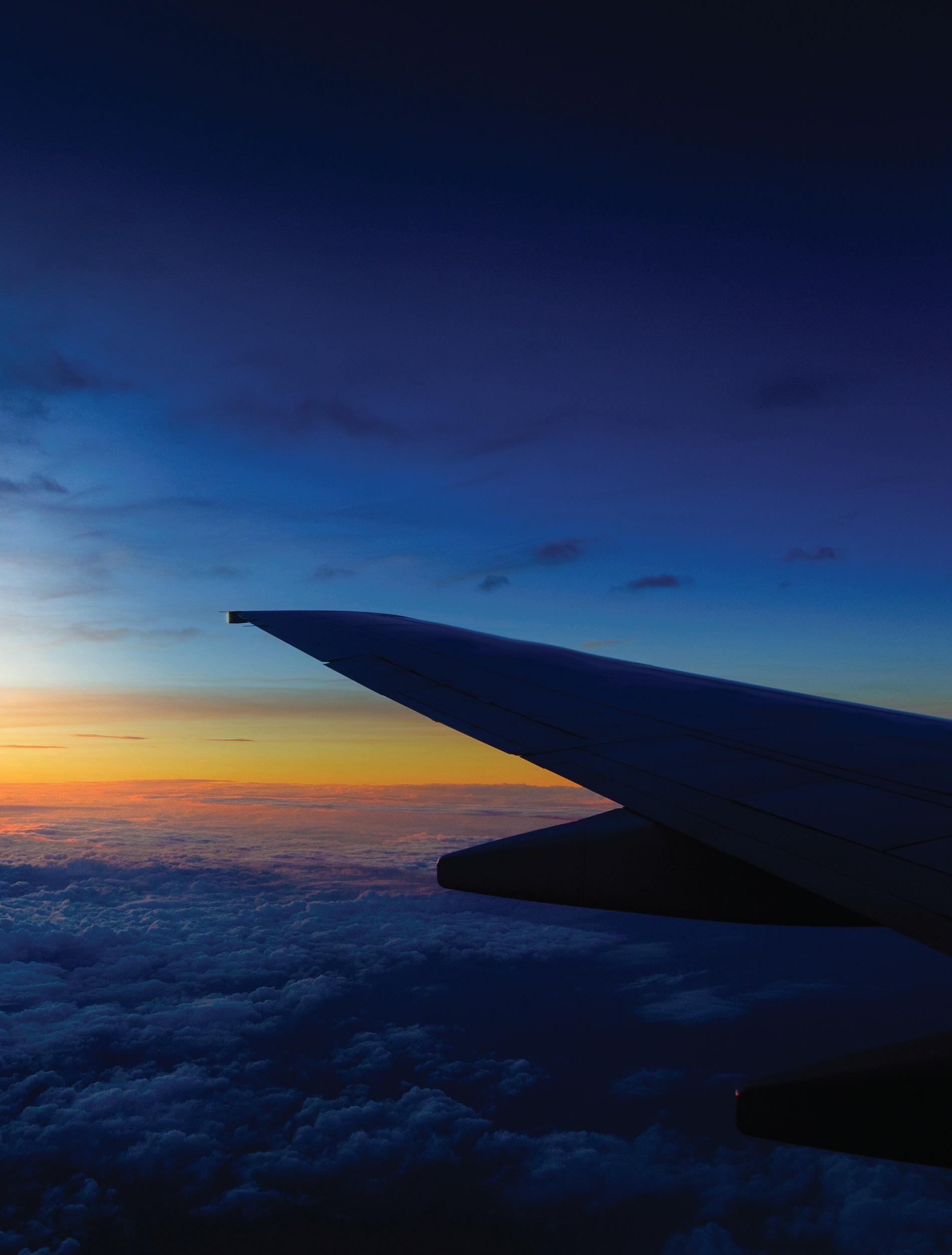
My initial training was at Bankstown prior to being accepted as a Cadet at Regional Express (Rex) in 2017. Through the cadetship I gained my CPL and instrument rating before starting as a Sydneybased FO on the Saab 340. I loved every minute, and in 2020 I was awarded a Perth-based Command.
What was your general health prior to your medical condition?
Prior to my diagnosis I was in good shape and tanned from a full summer in Perth. At 26 years old I felt bullet proof and ready to take on the world, enjoying the challenges of my profession.
Why were you grounded?
In early 2021, I began to experience what I would later find out to be classic symptoms of Type 1 Diabetes – excessive thirst, lethargy and rapid weight loss. I experienced a rapid deterioration in the week prior to my diagnosis, which I thought was a cold or flu.
My condition worsened and I was admitted to hospital, where I was diagnosed with Type 1 Diabetes. I turned 27 on my final day in hospital and was told it was likely that I would never fly again.
How was the MBF able to help?
I notified work and CASA of my diagnosis and began the slow process of recovery back in Sydney, totally dedicating myself to learning how to manage my condition.
Getting MBF Loss of Licence cover was one of the first things I did when I began my flying career after
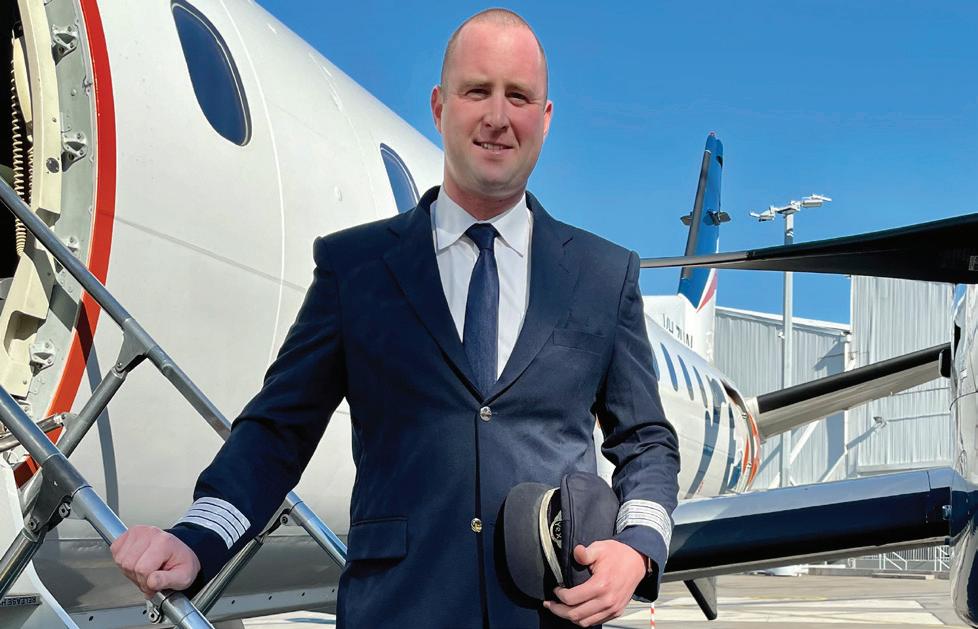
it was recommended by senior captains at Rex. This would prove to be invaluable advice.
Combined with the support of doctors, specialists, my employer, friends and family, the MBF was an added support network, providing a safety net upon which I could rely during the initial stages of my recovery, guiding you through the process of applying for benefits and encouraging you to leave no stone unturned in your individual recovery.
Why is Loss of Licence cover so important?
Loss of Licence cover provides financial stability when ‘the wheels are falling off.’ It means you can totally dedicate yourself to your recovery without the added stress of financial hardship.
I’m firmly of the belief that MBF Loss of Licence cover played a significant part in my ability to recover quickly and regain my Class 1 Medical.
While 2021 was incredibly challenging, returning to work, finishing my upgrade training and being checked to line as a Captain, all with Type 1 Diabetes has been one of my most significant professional achievements to date.
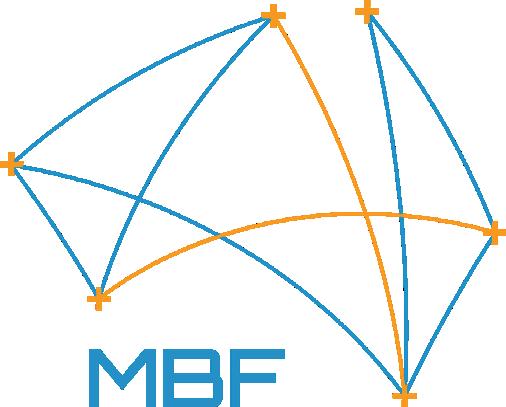
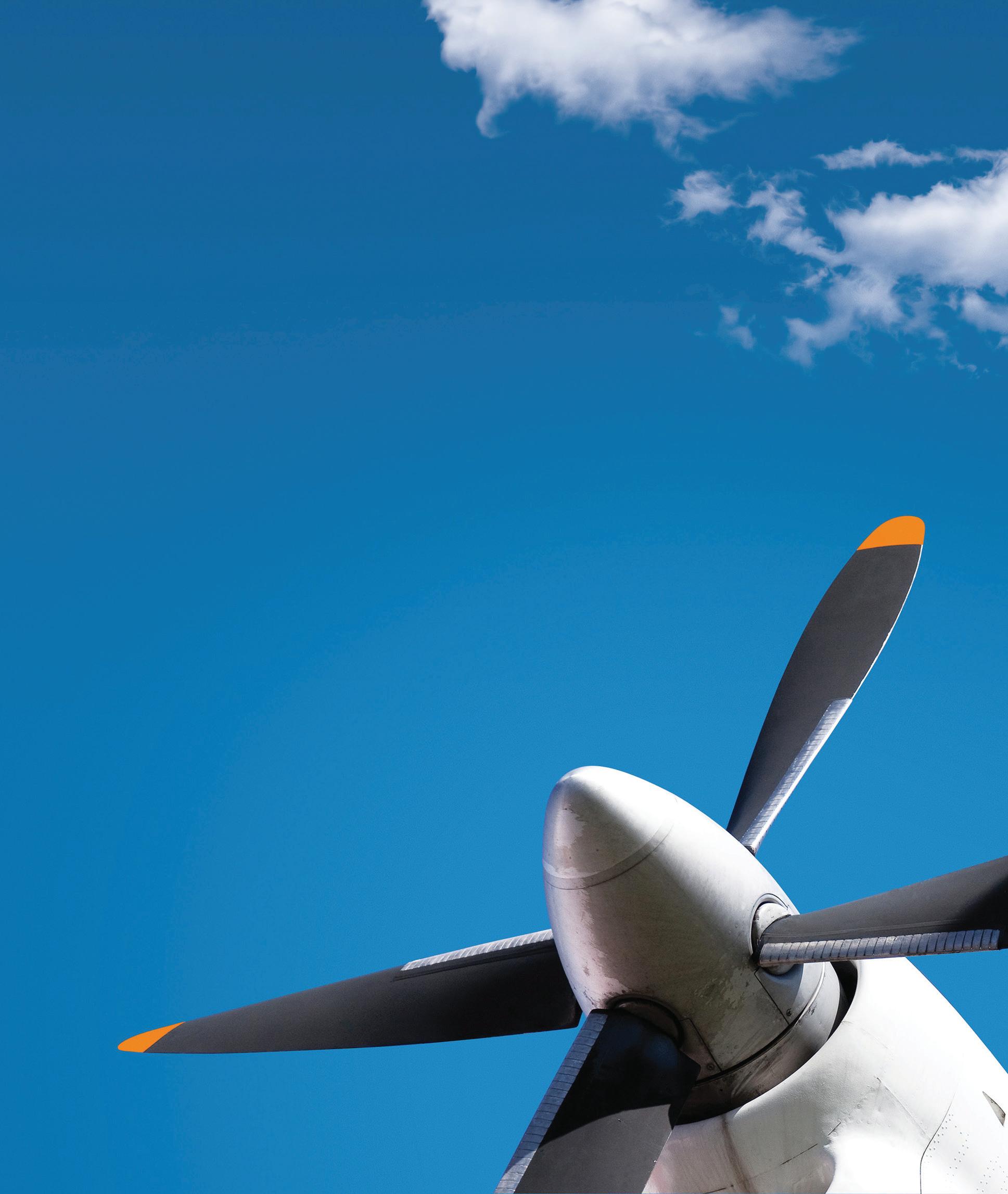
If you could not fly due to an unexpected injury or illness, have you considered the financial impact on you and your family?
Membership of the Fund can assist with eligible claims so you can focus on your recovery and less on the financial pressures of life.
A membership organization - not an insurance company
60+ years security, peace of mind and stability
Refund of Contributions to qualifying members
A ‘pilots for pilots’ mutual fund where the assets belong to members
Guided by fairness, not profit
Under the Air Pilots Award 2020, pilots are entitled to an Annual Loss of Licence allowance paid by their employer. Those with an Enterprise Agreement or individual contract may be entitled to more. Your Loss of Licence allowance may cover your entire membership Contribution.
